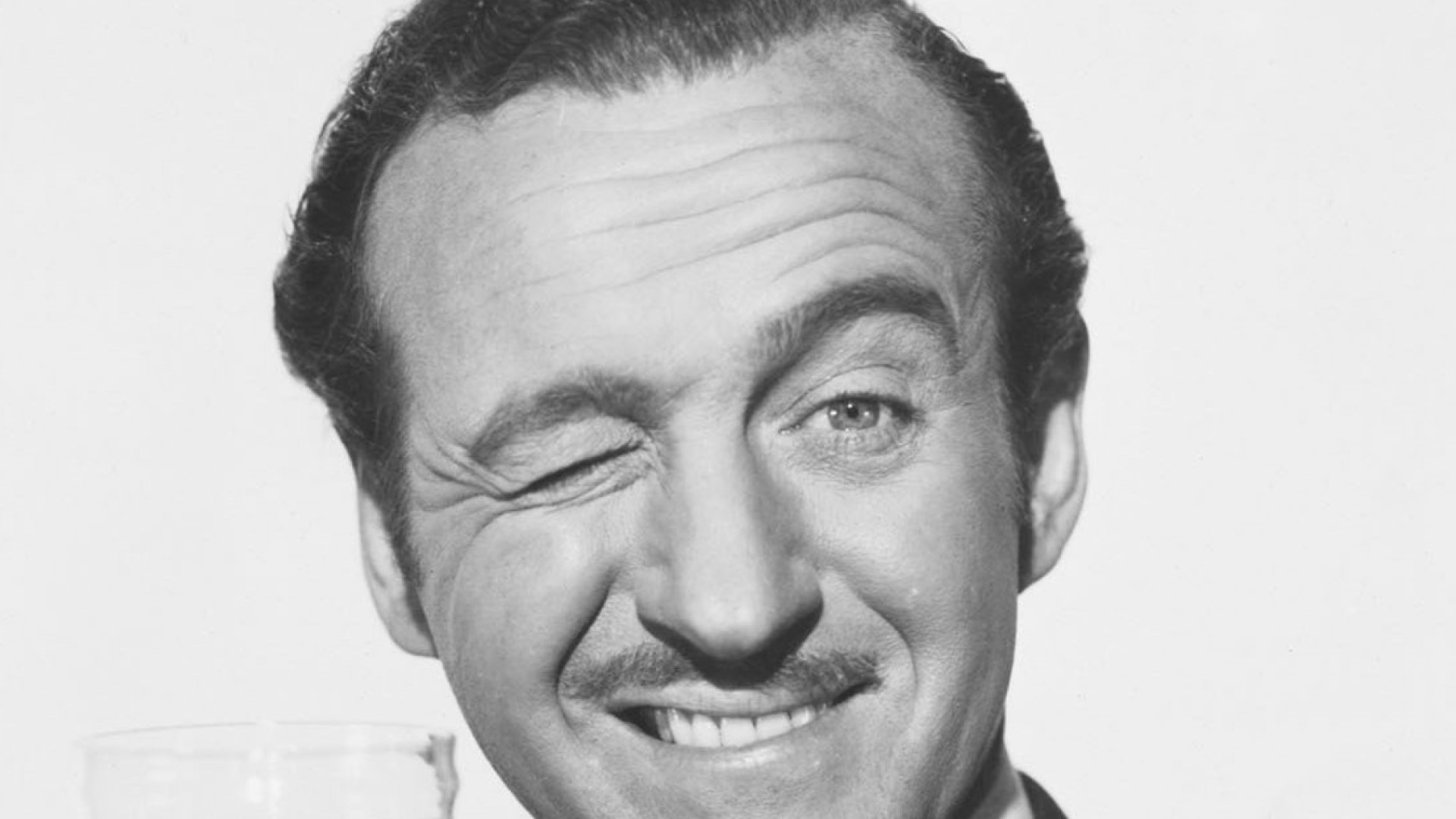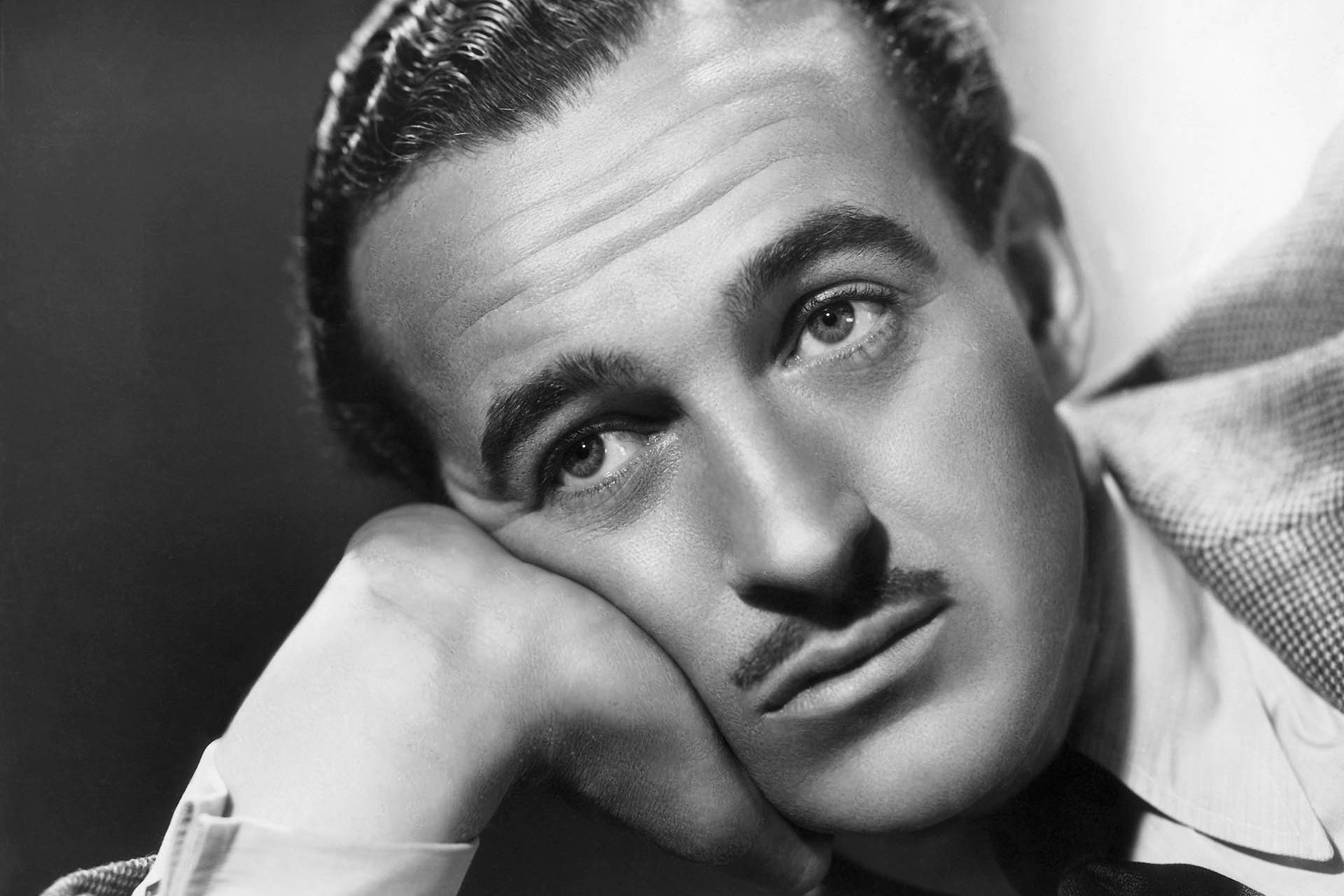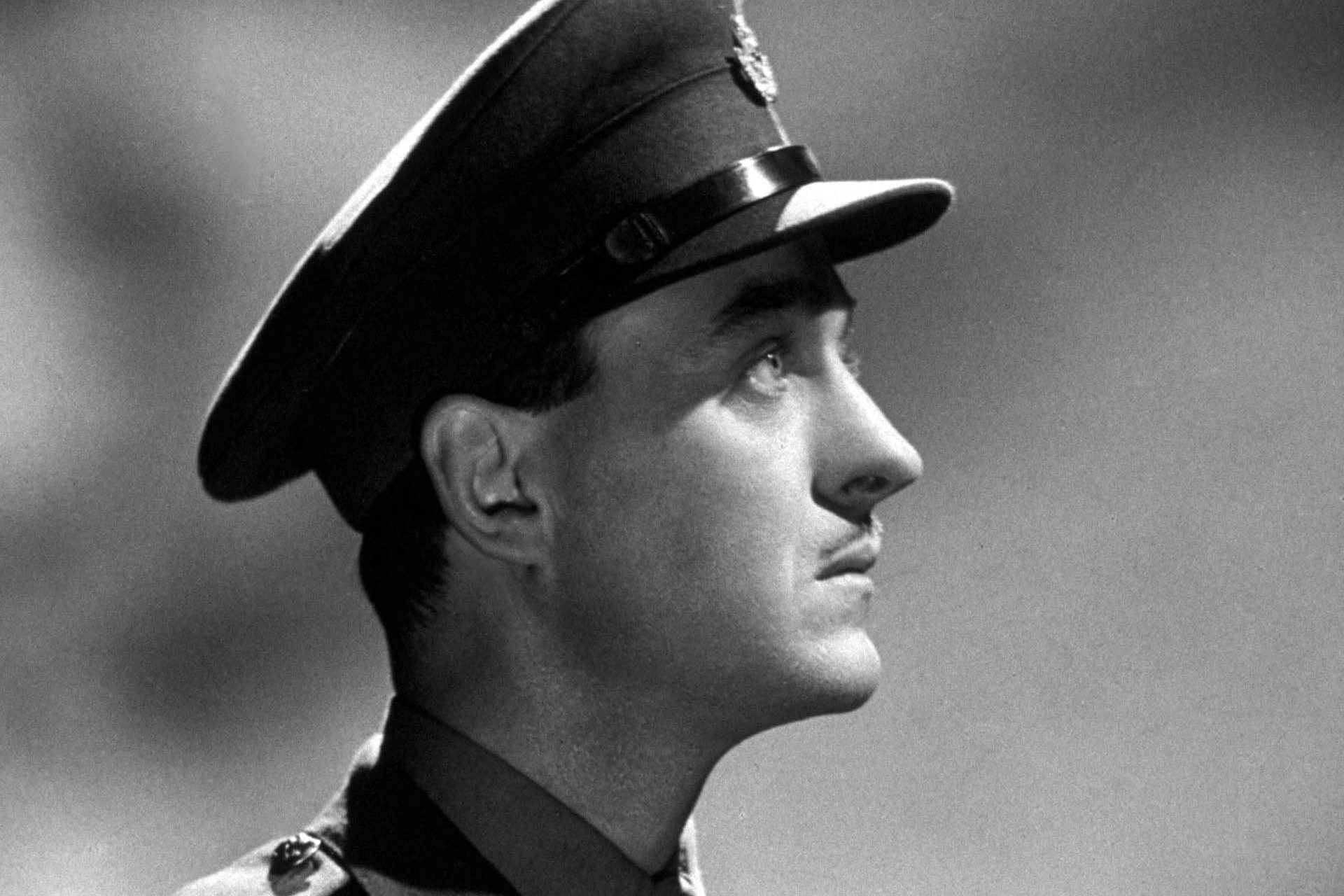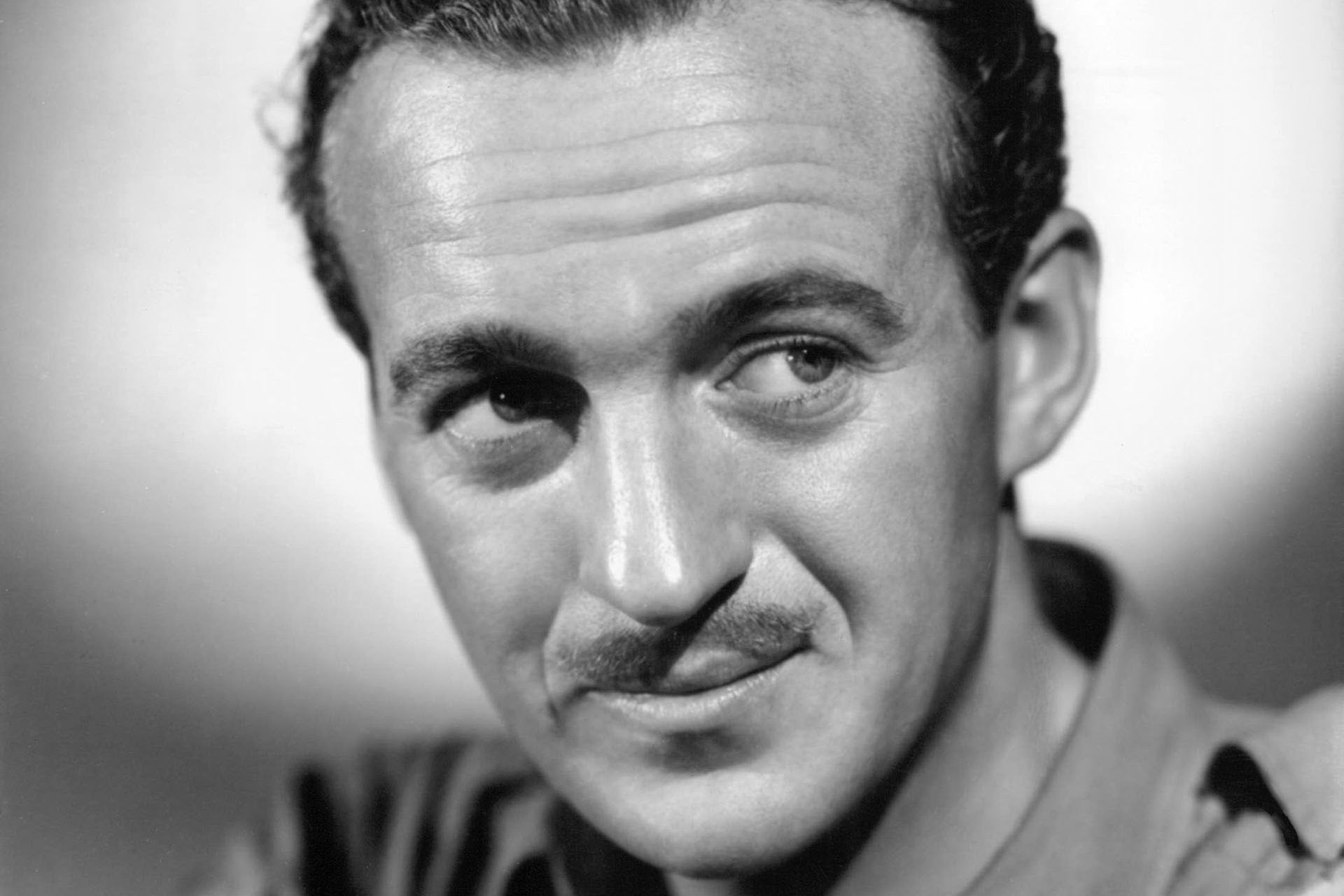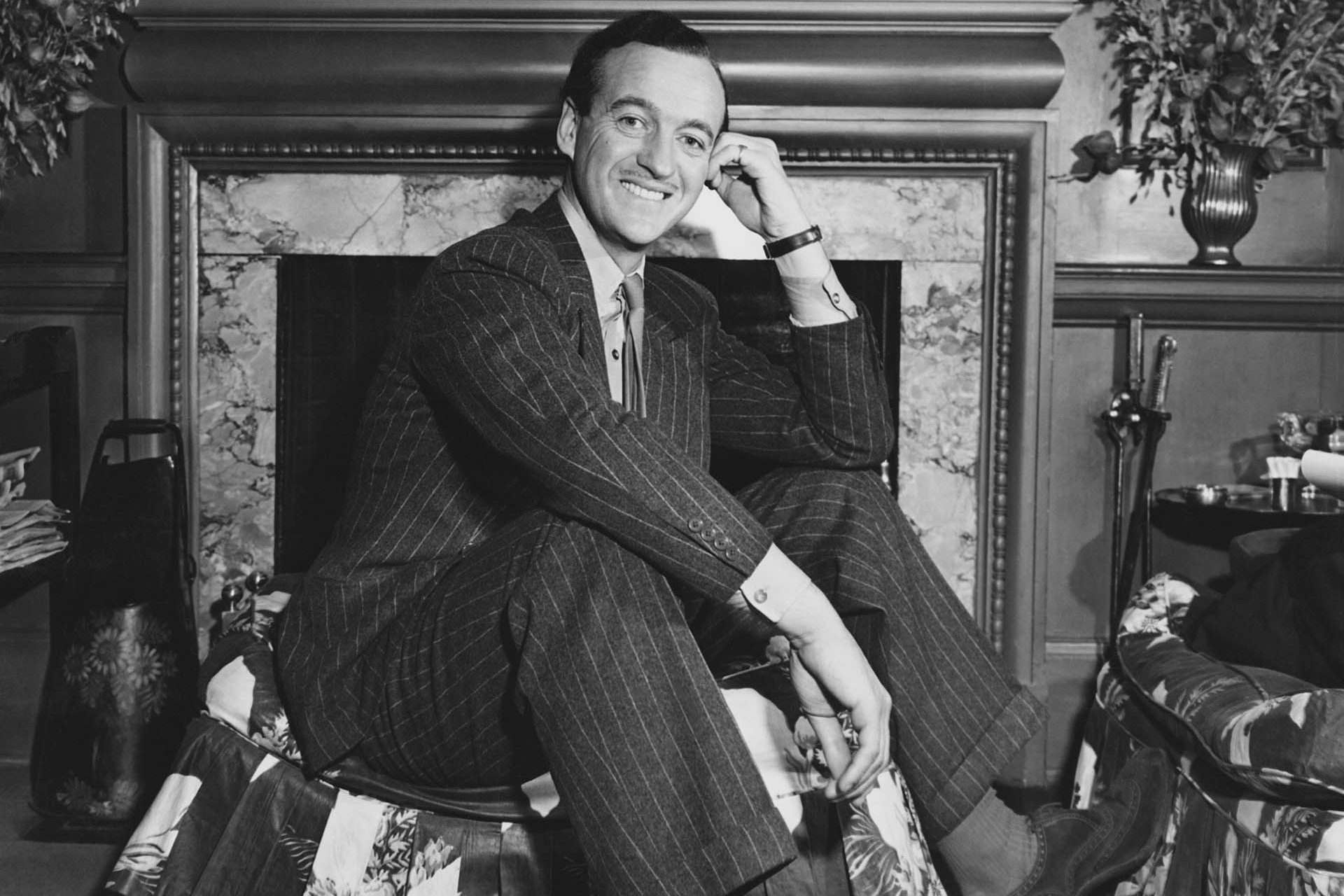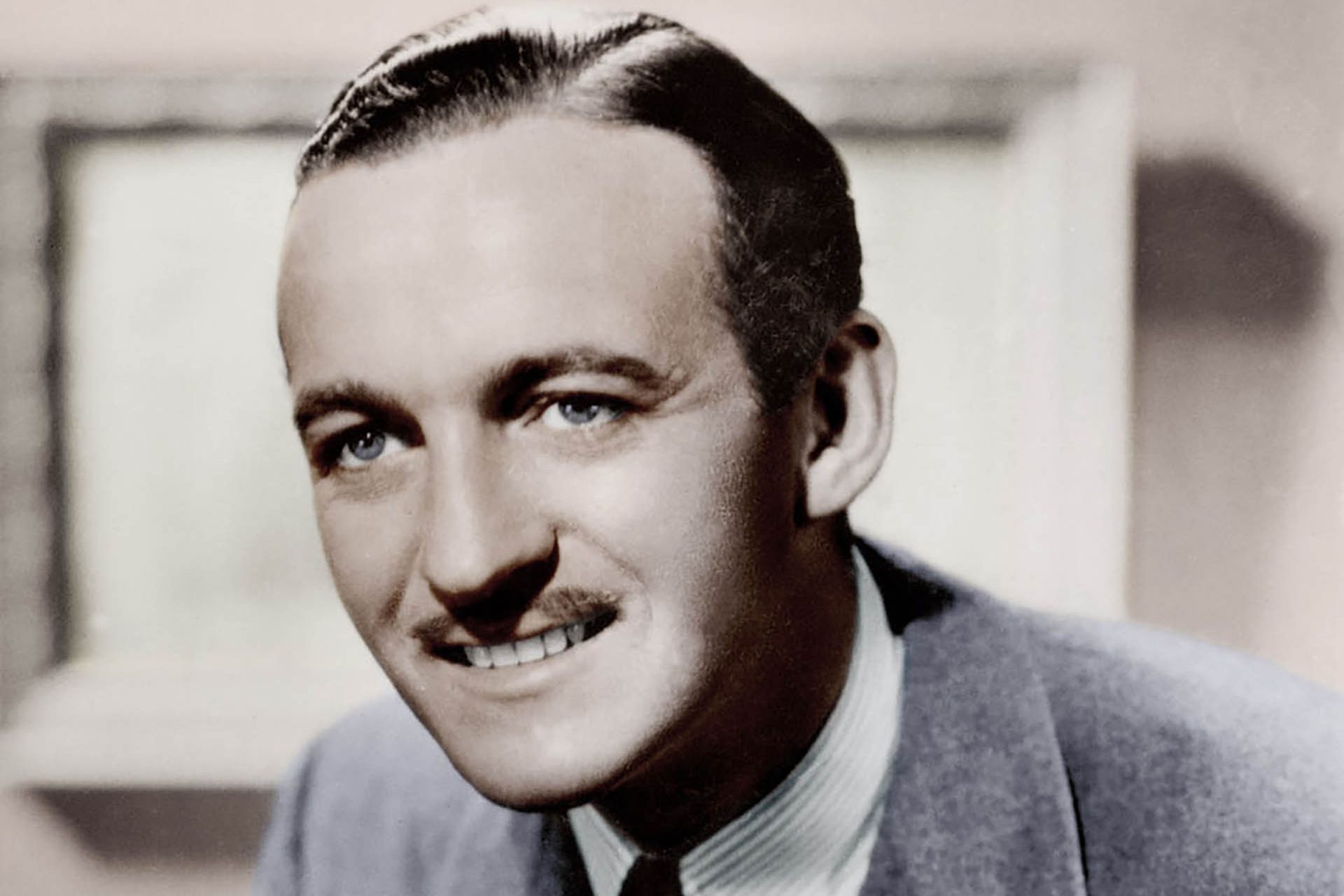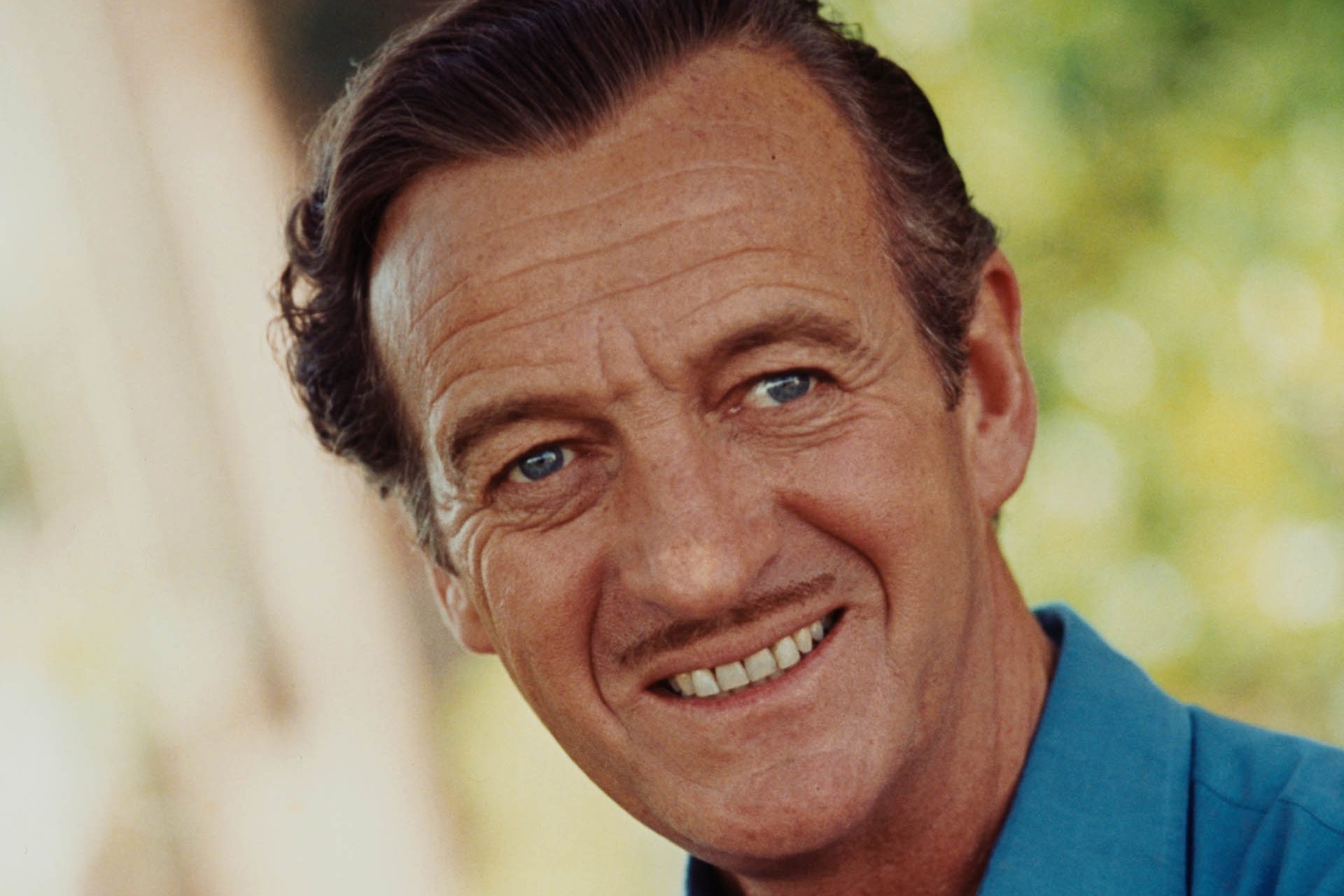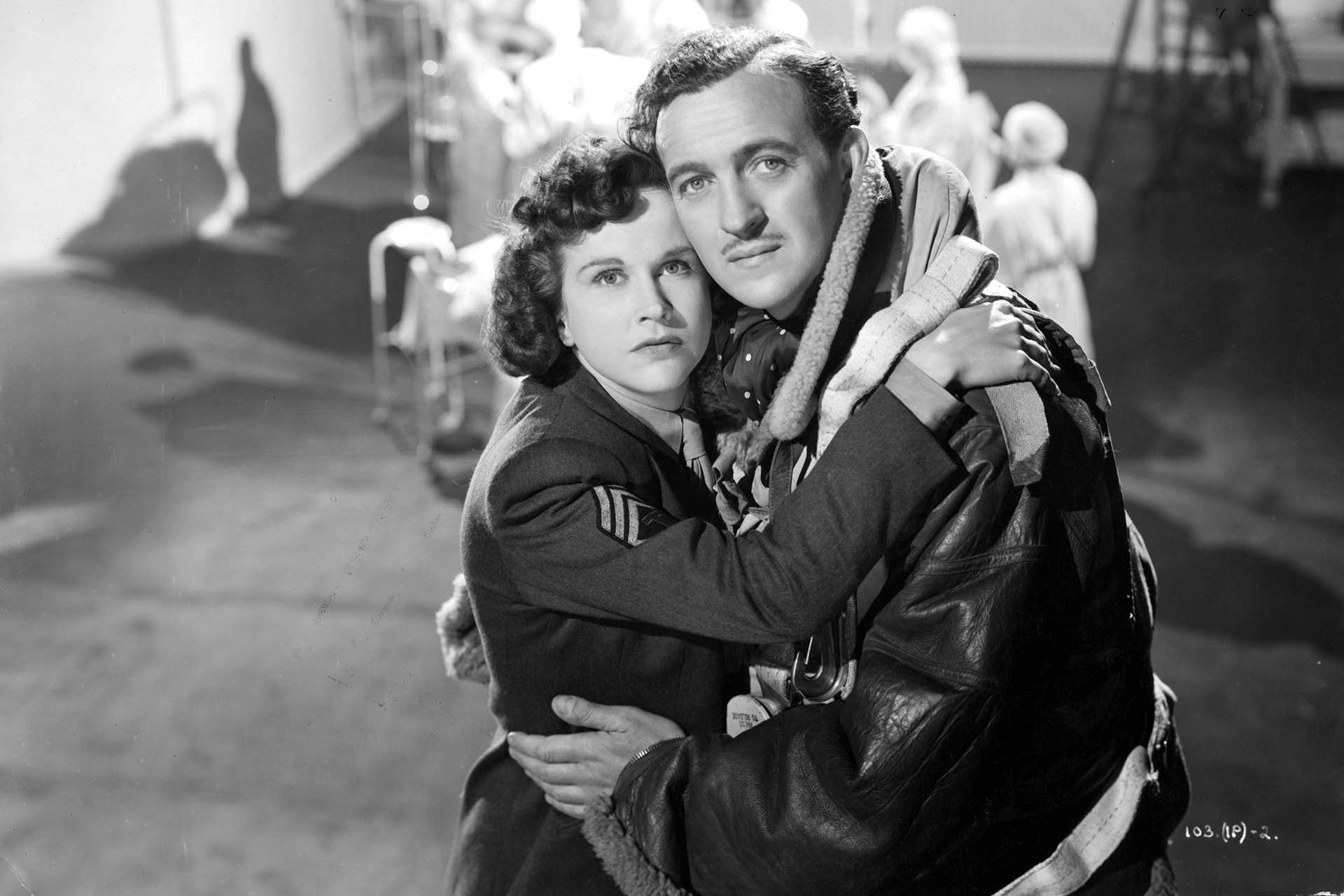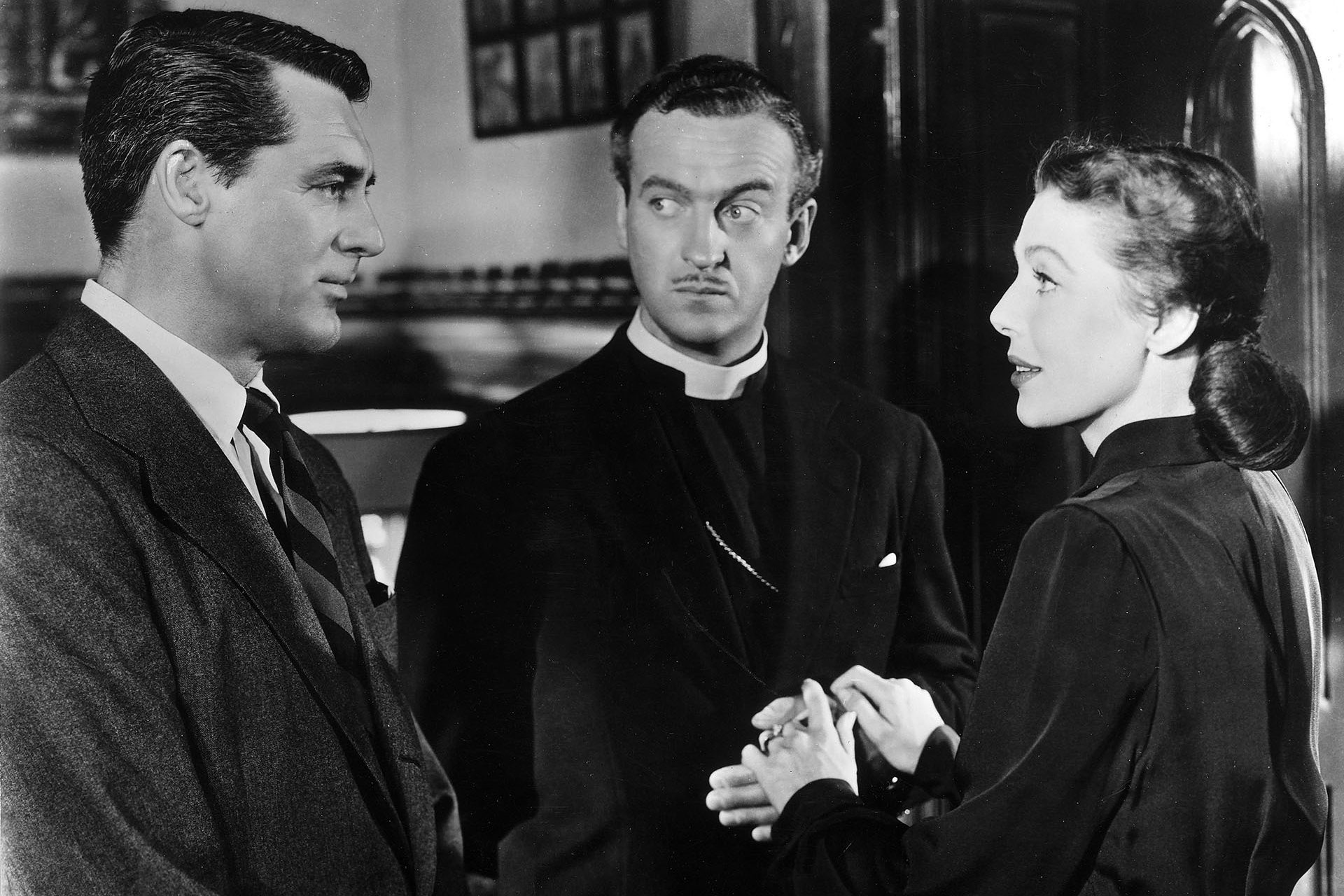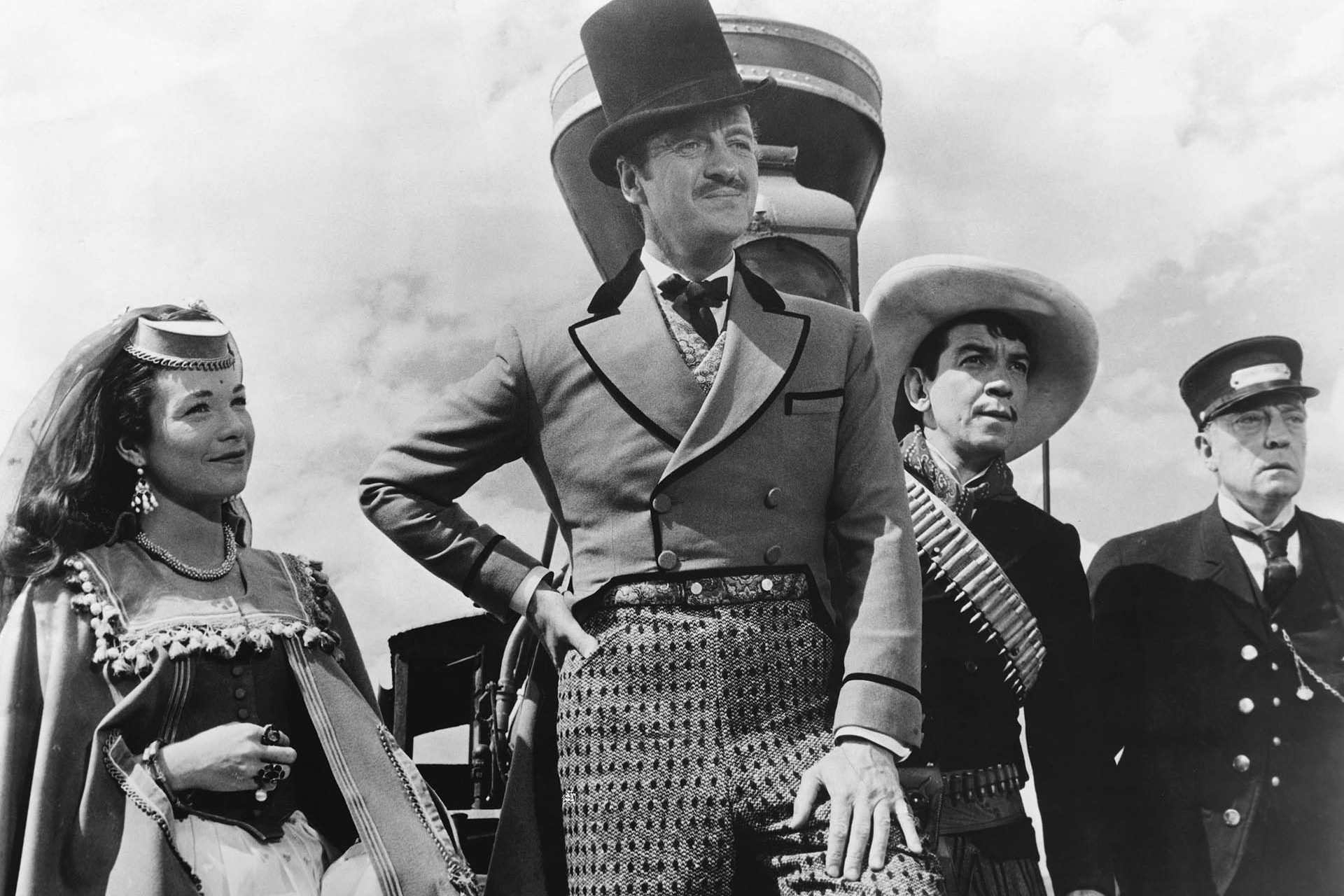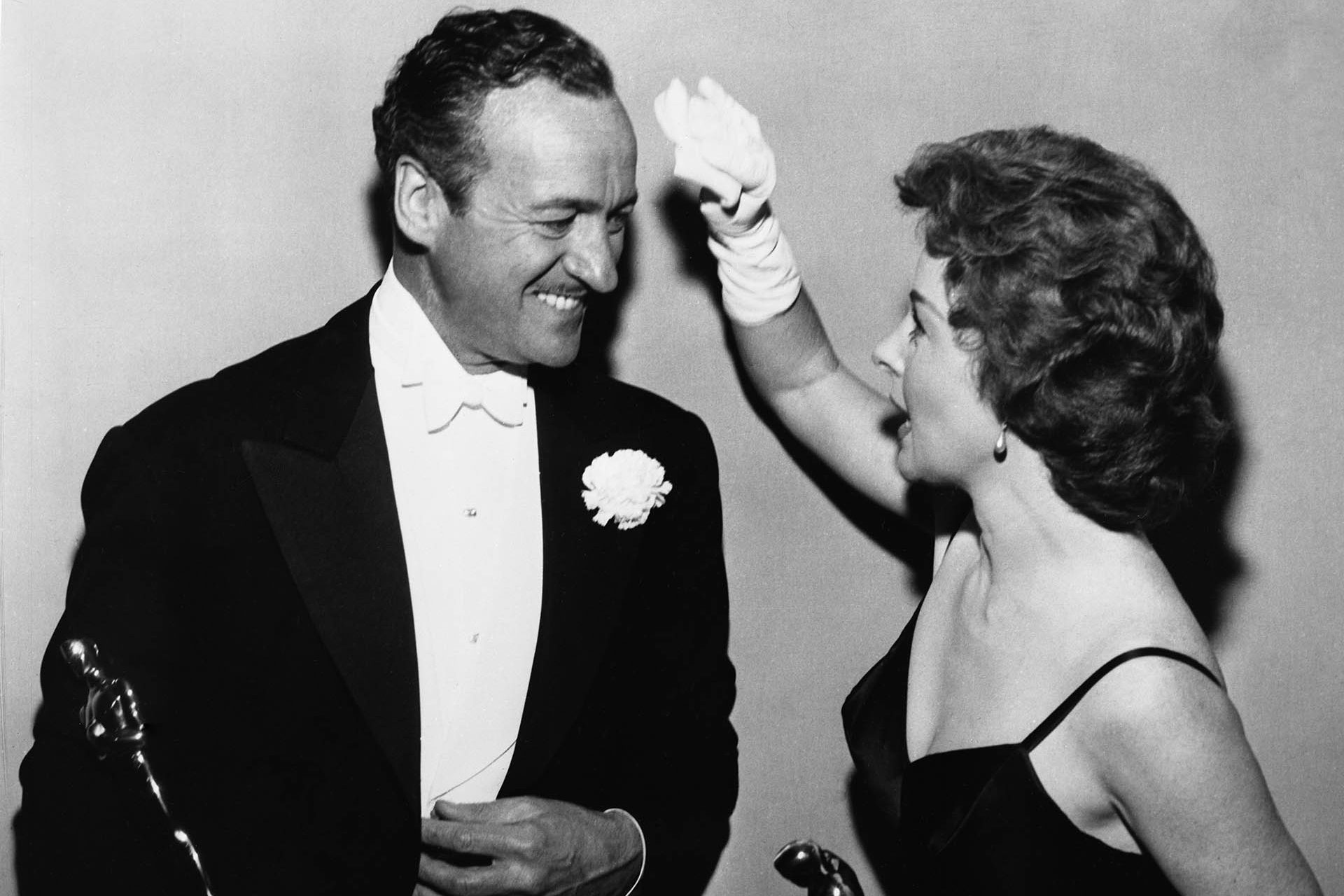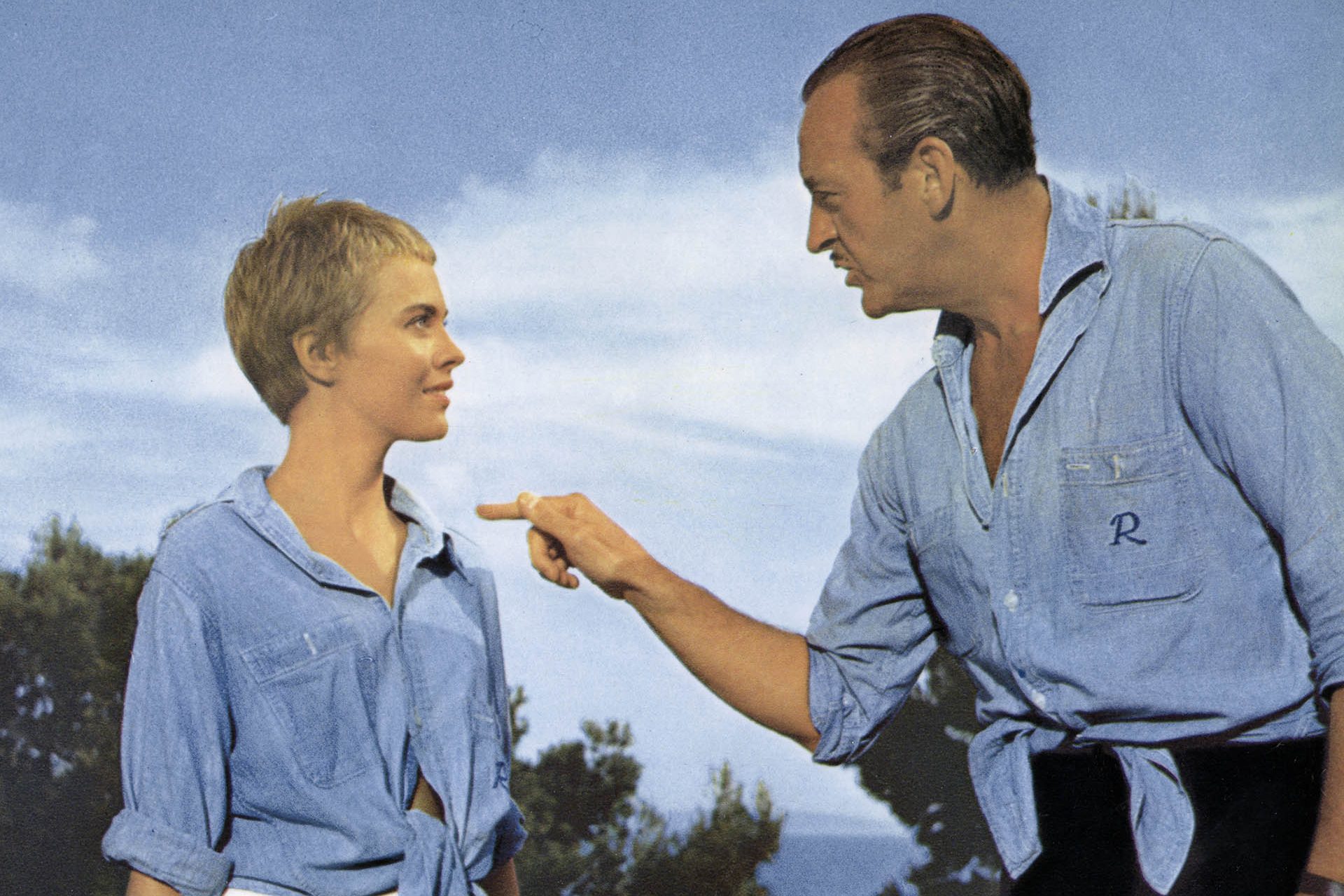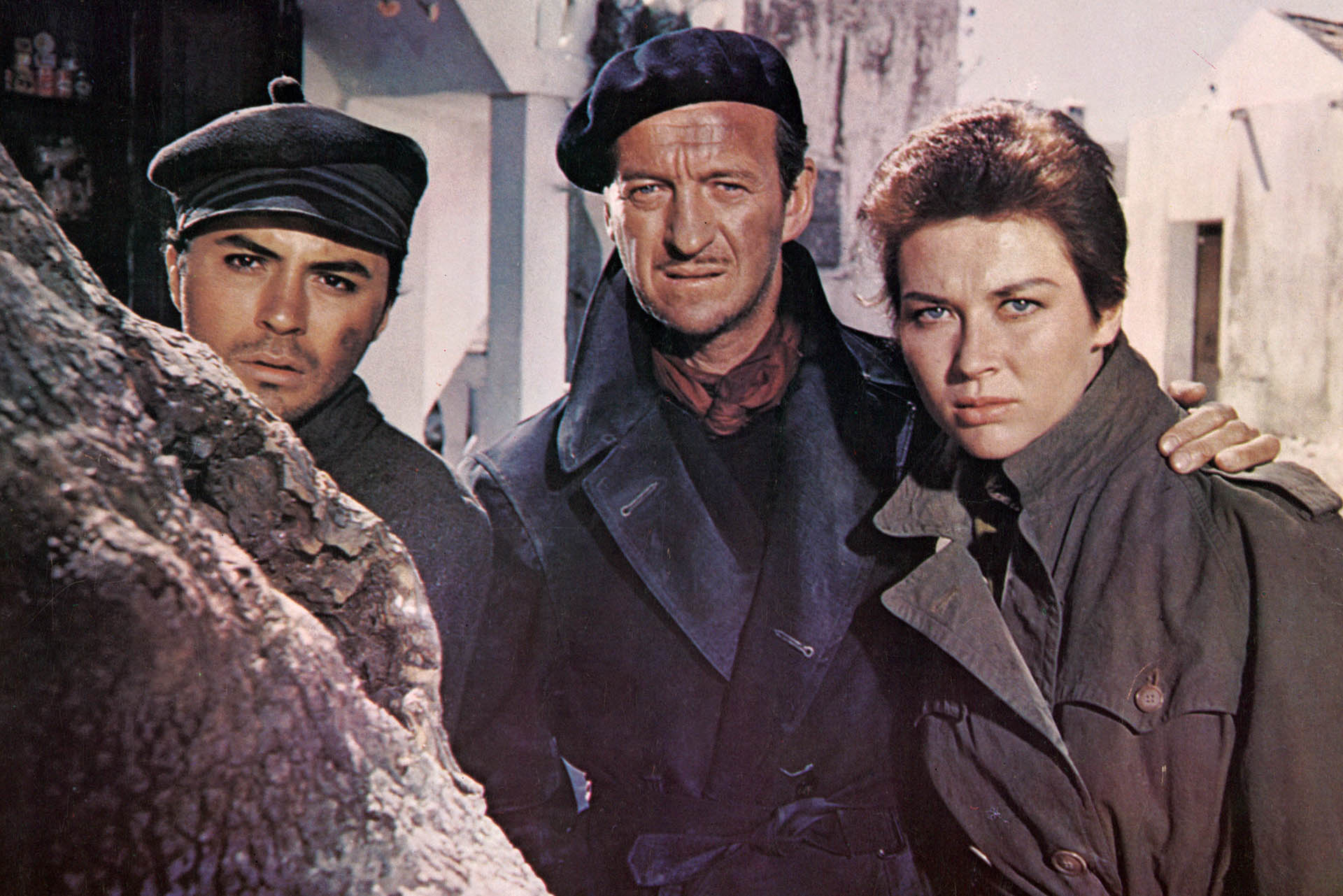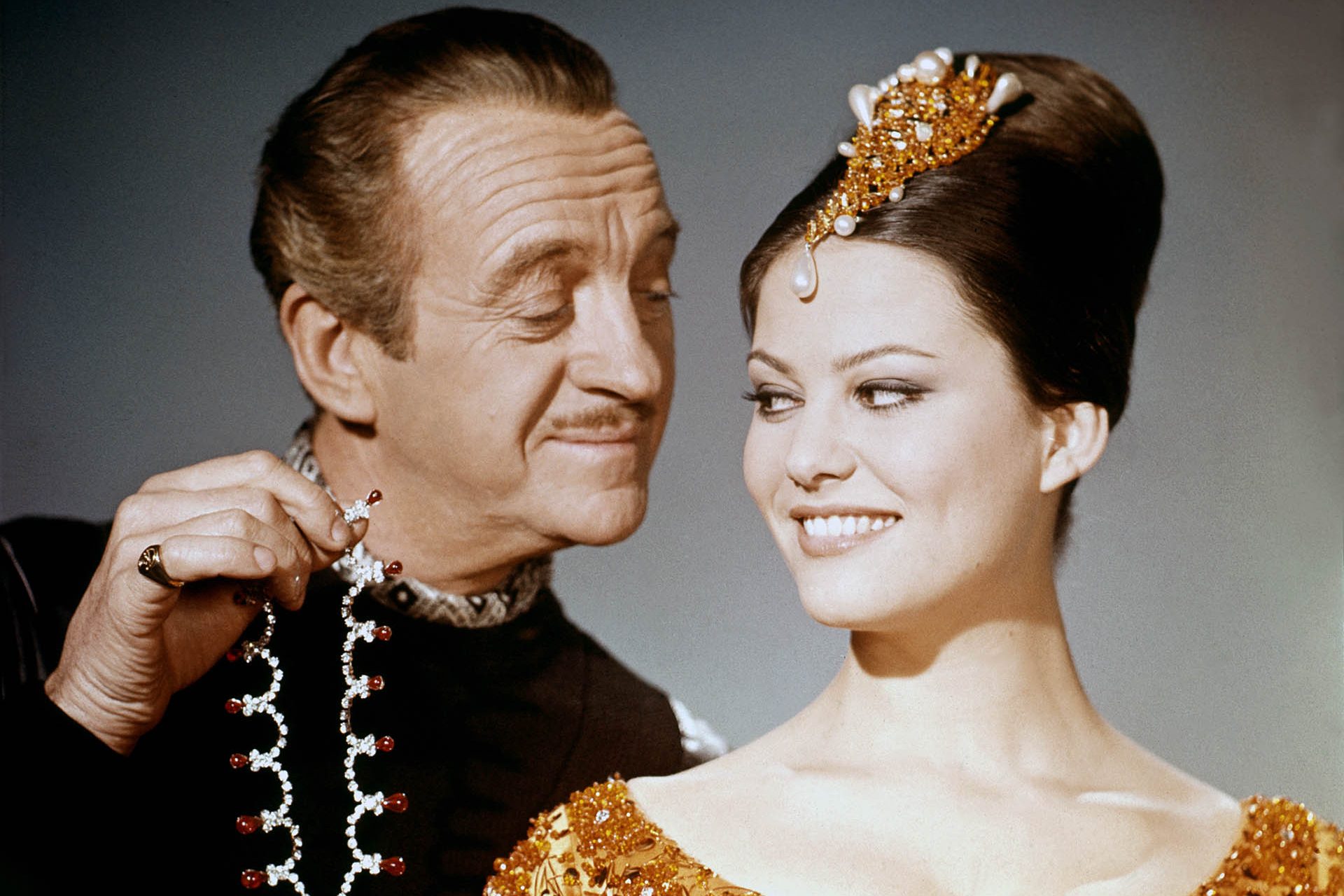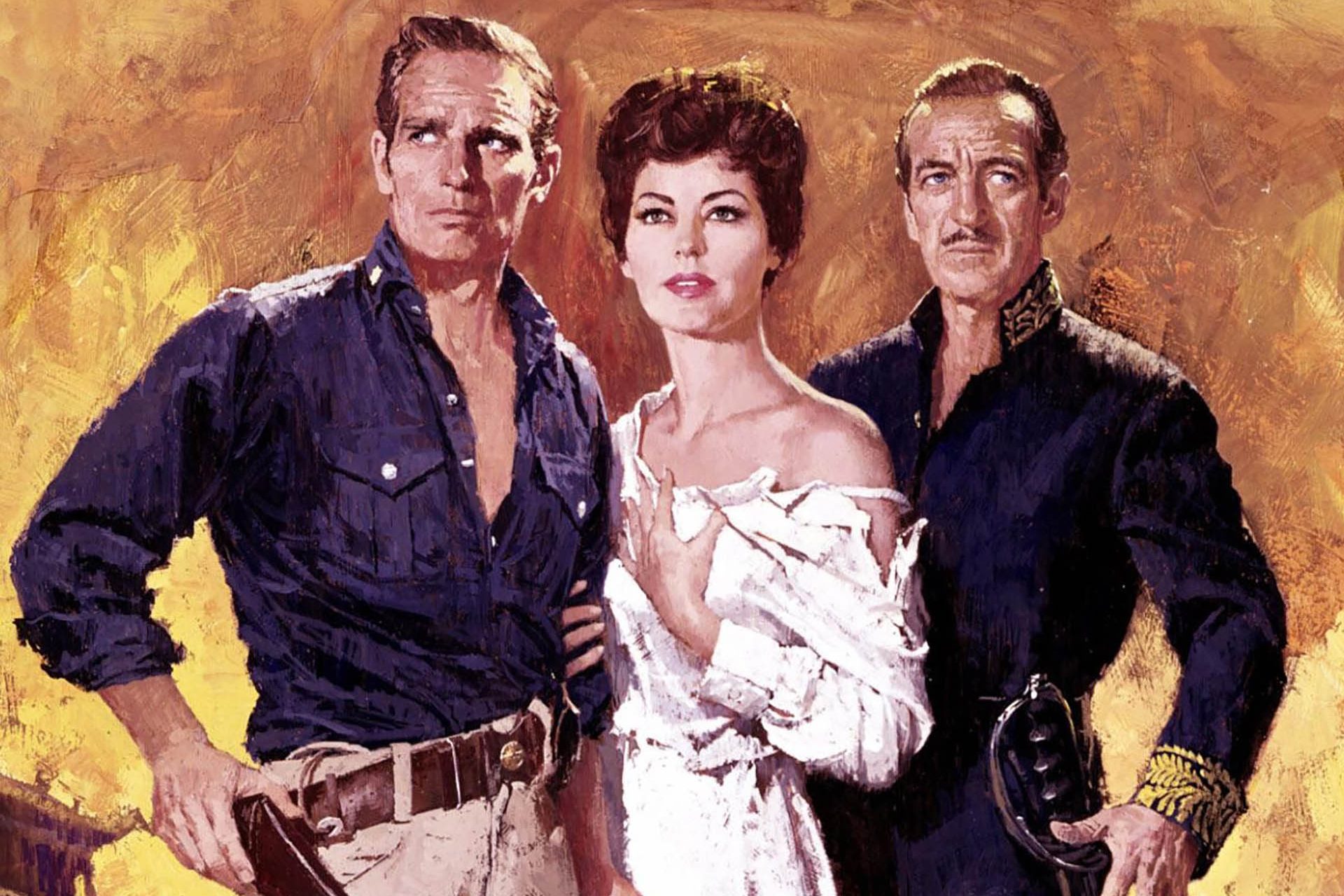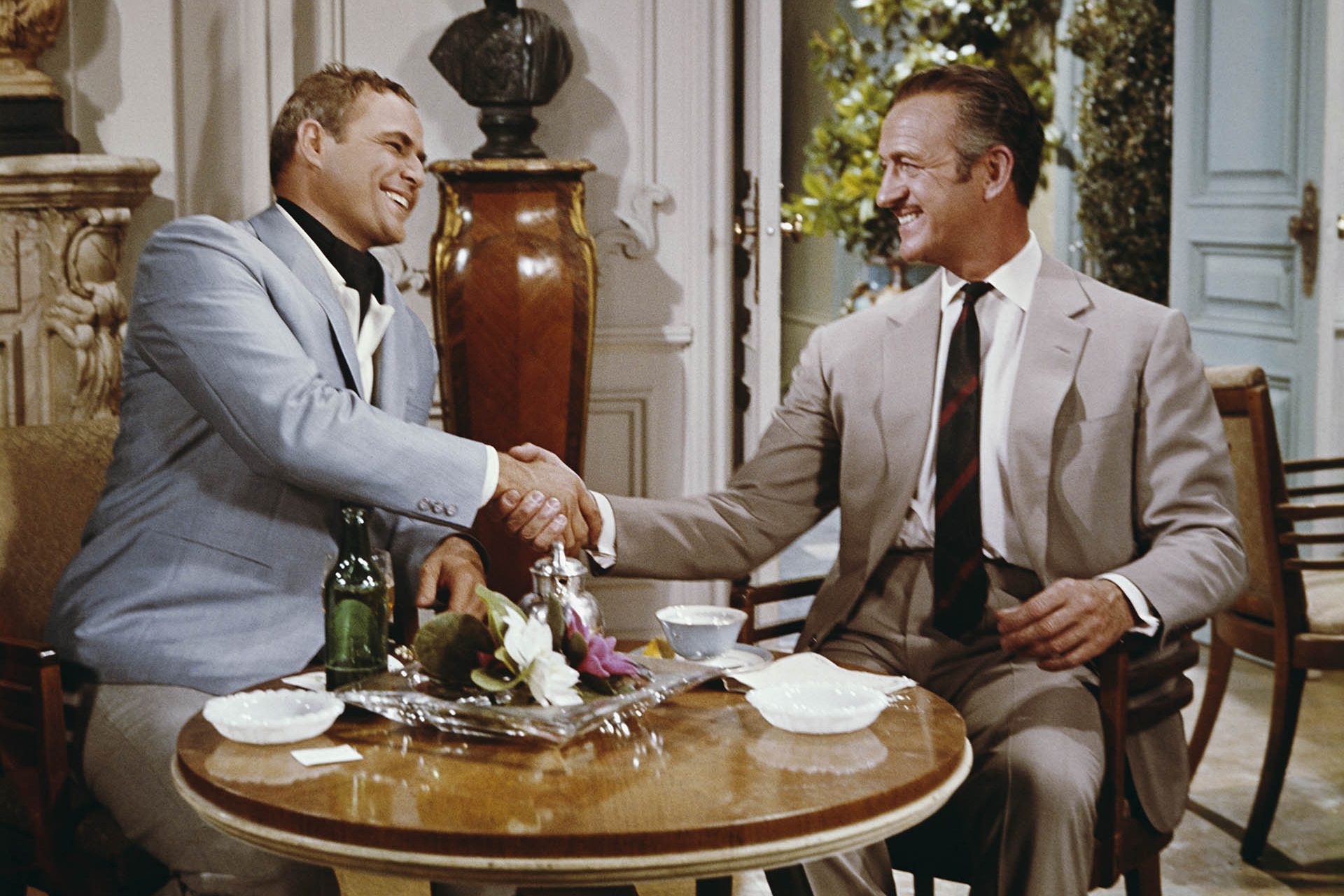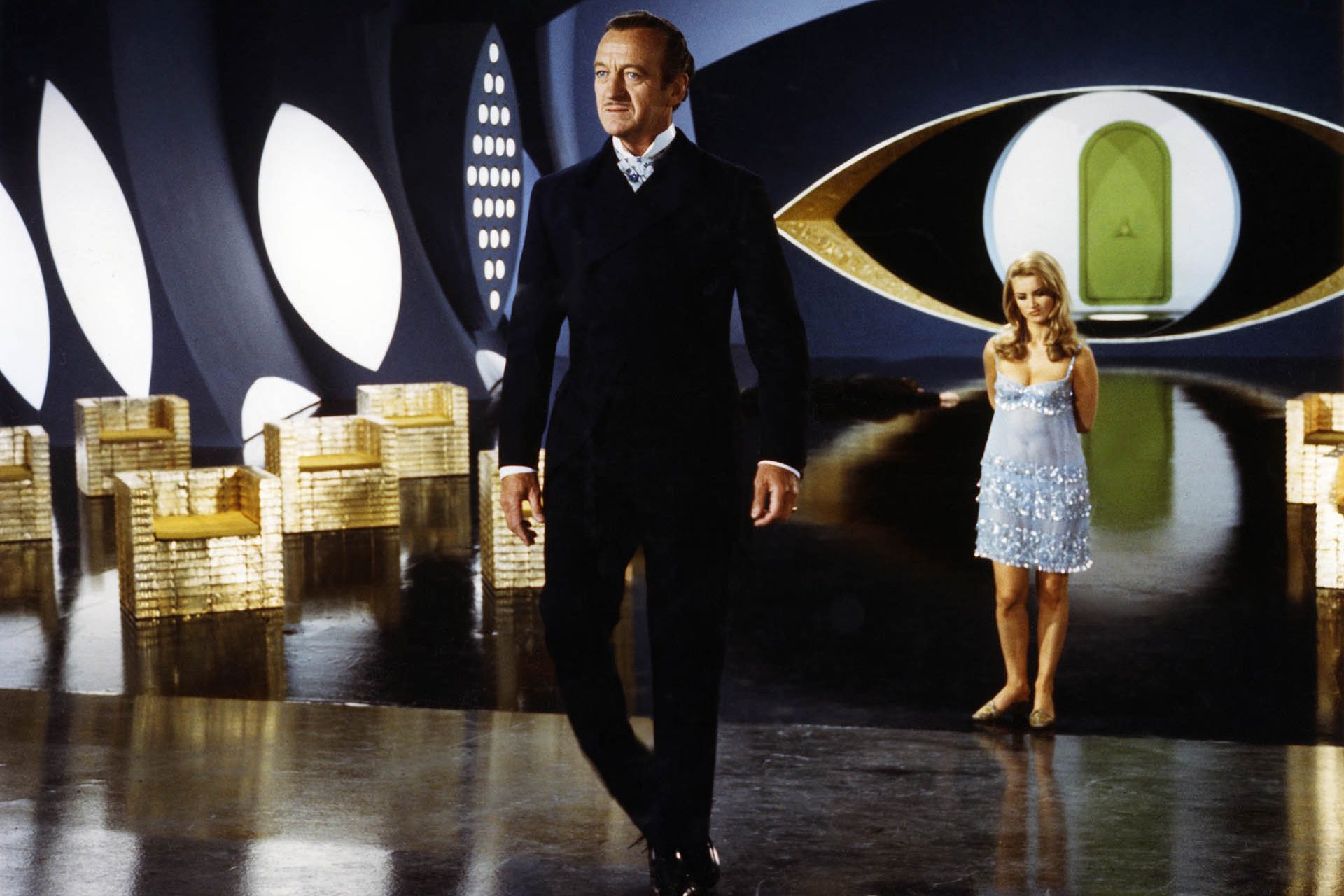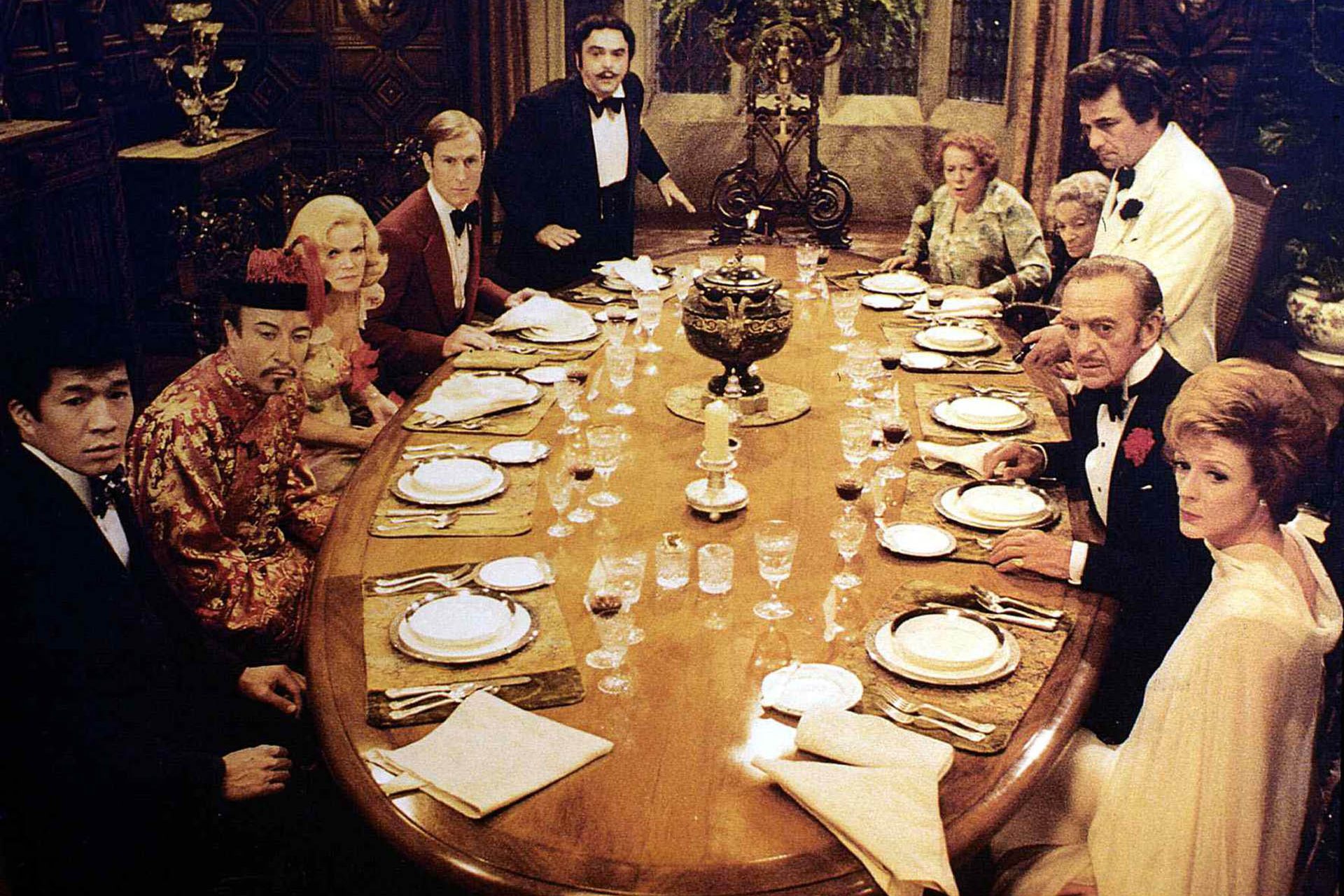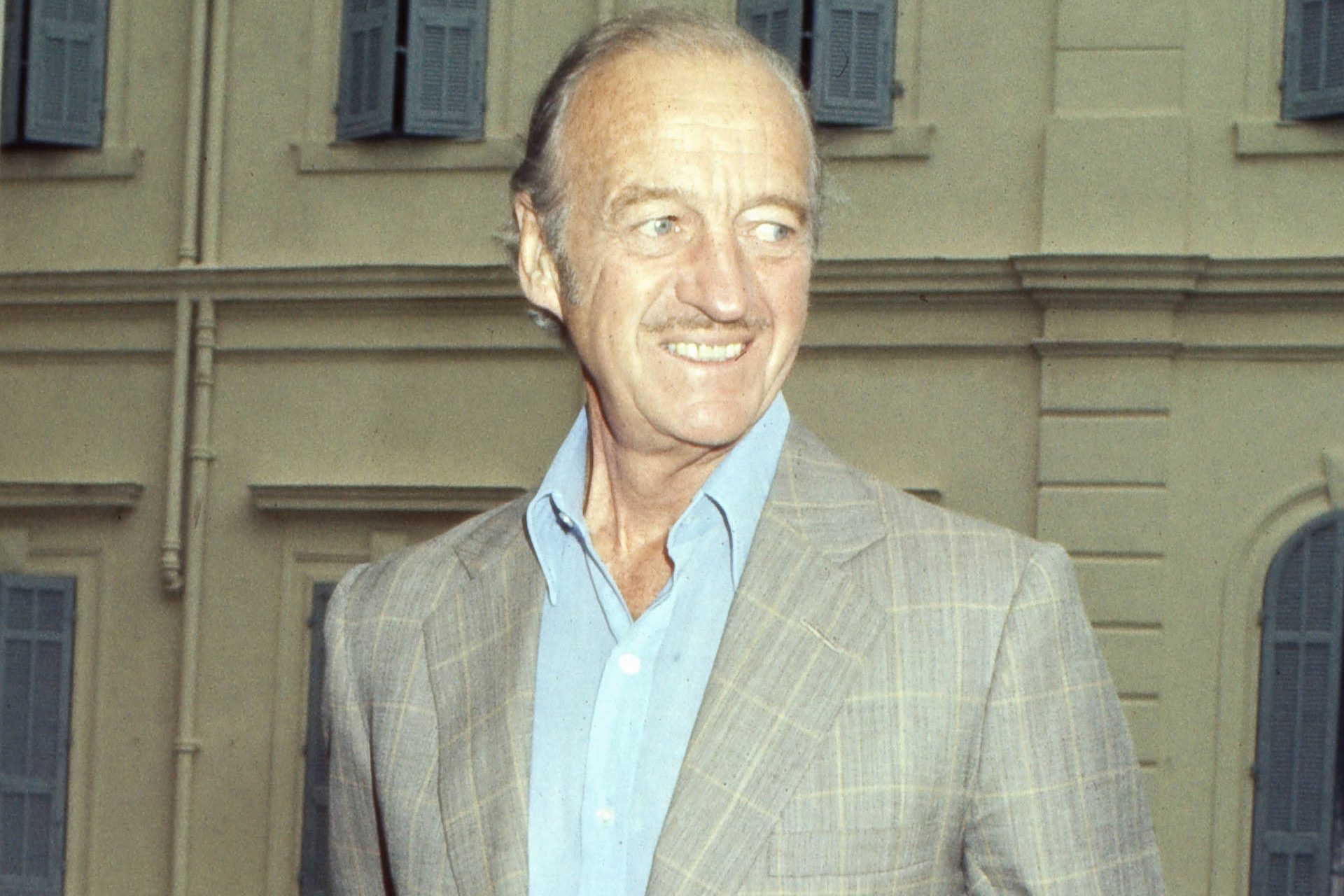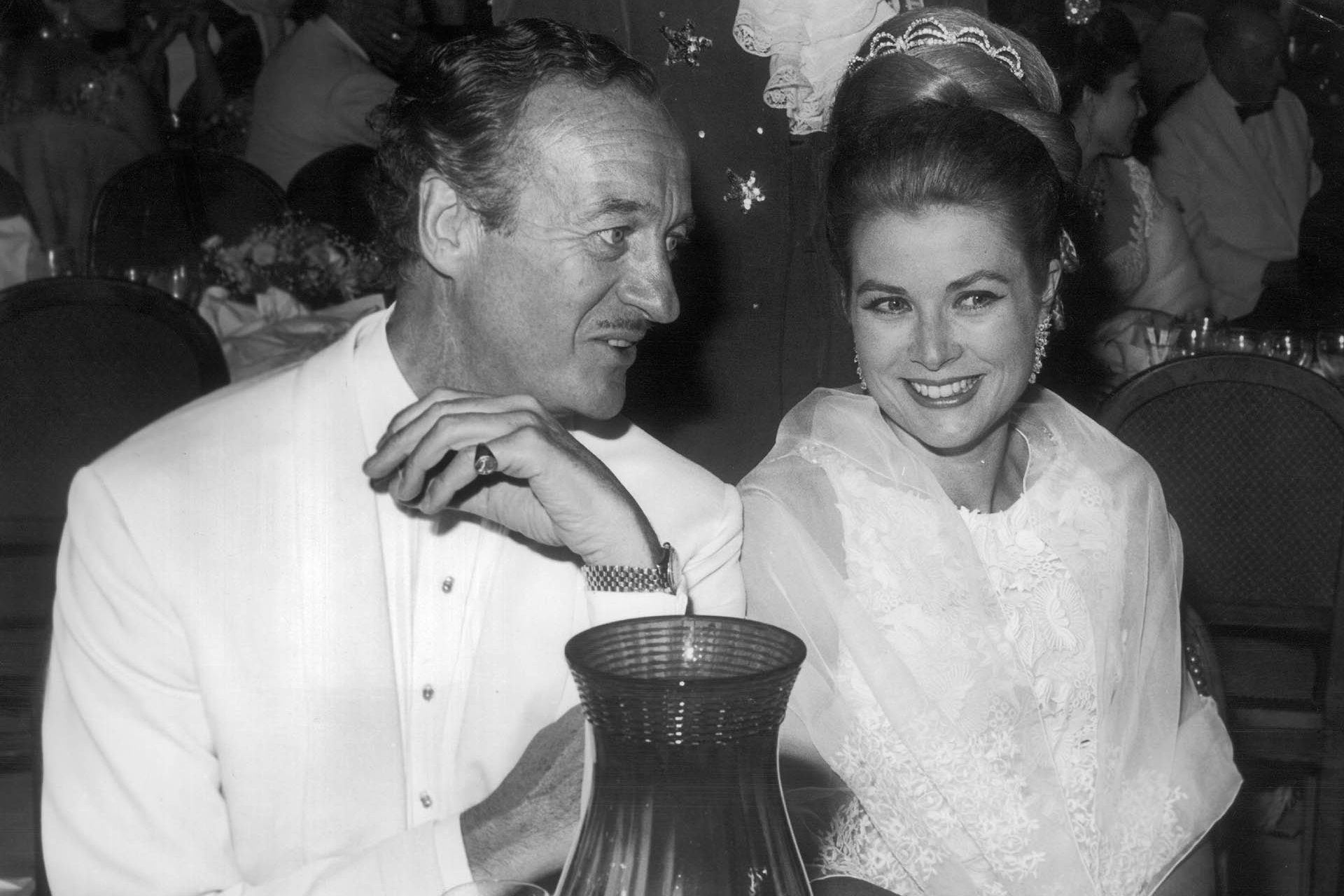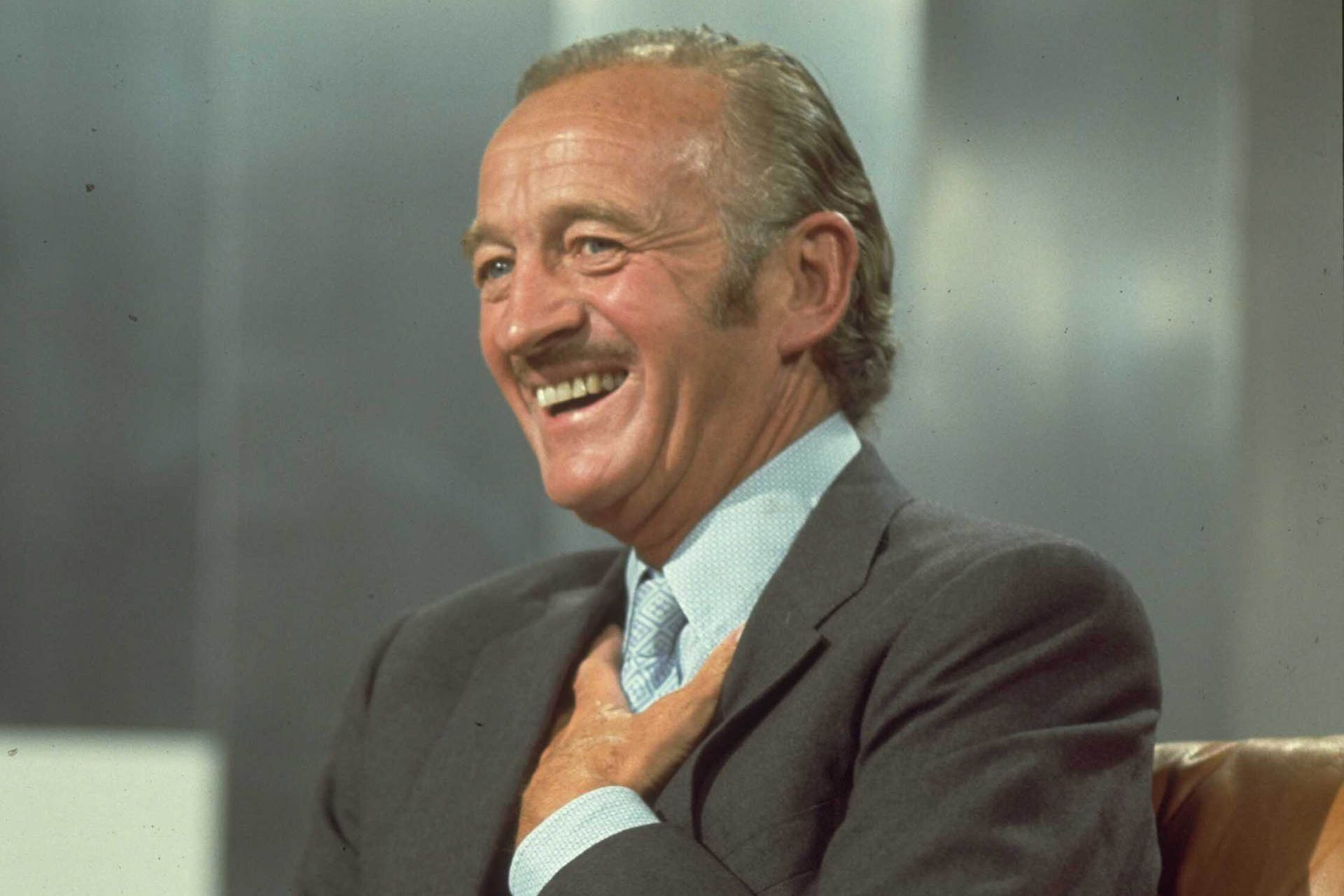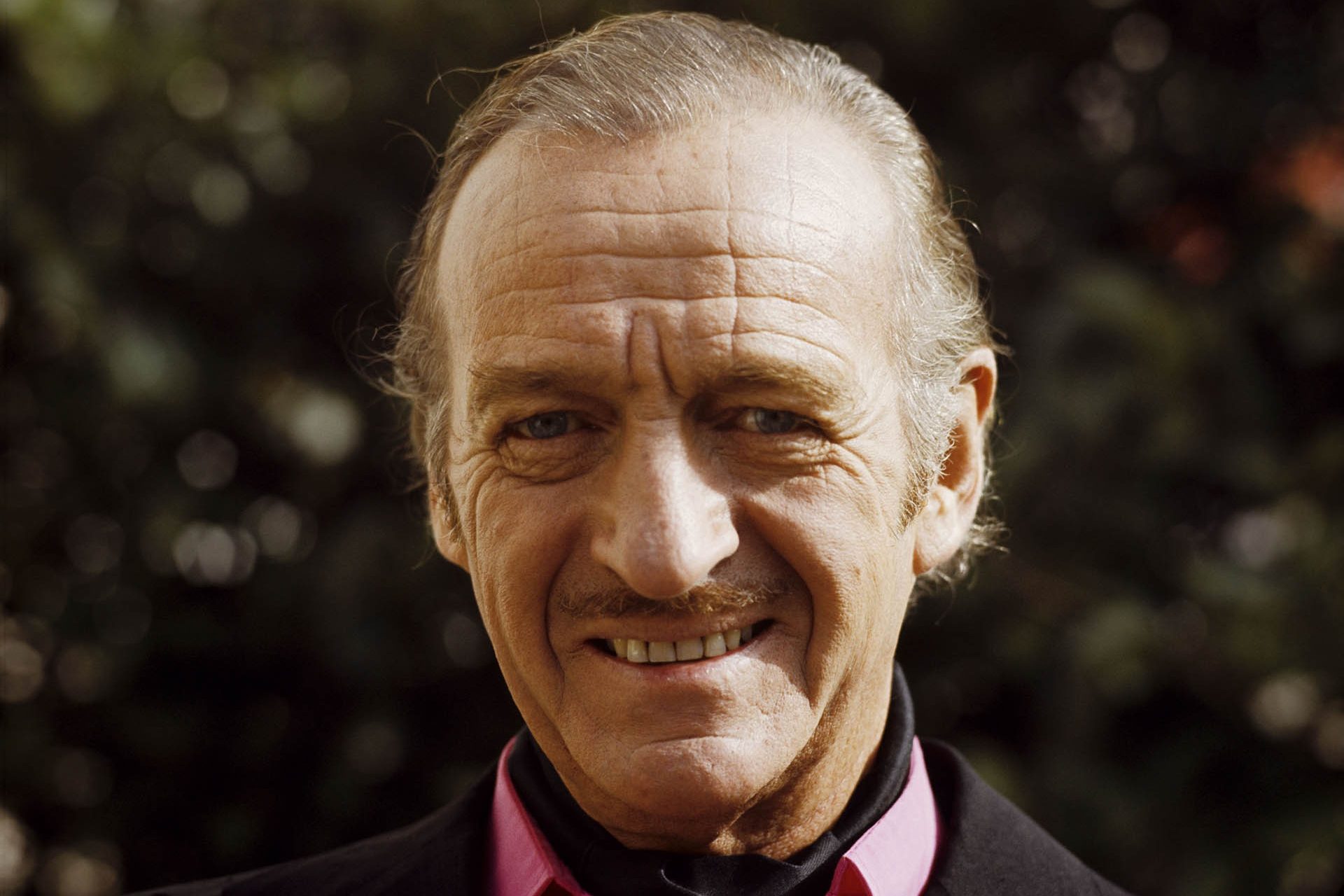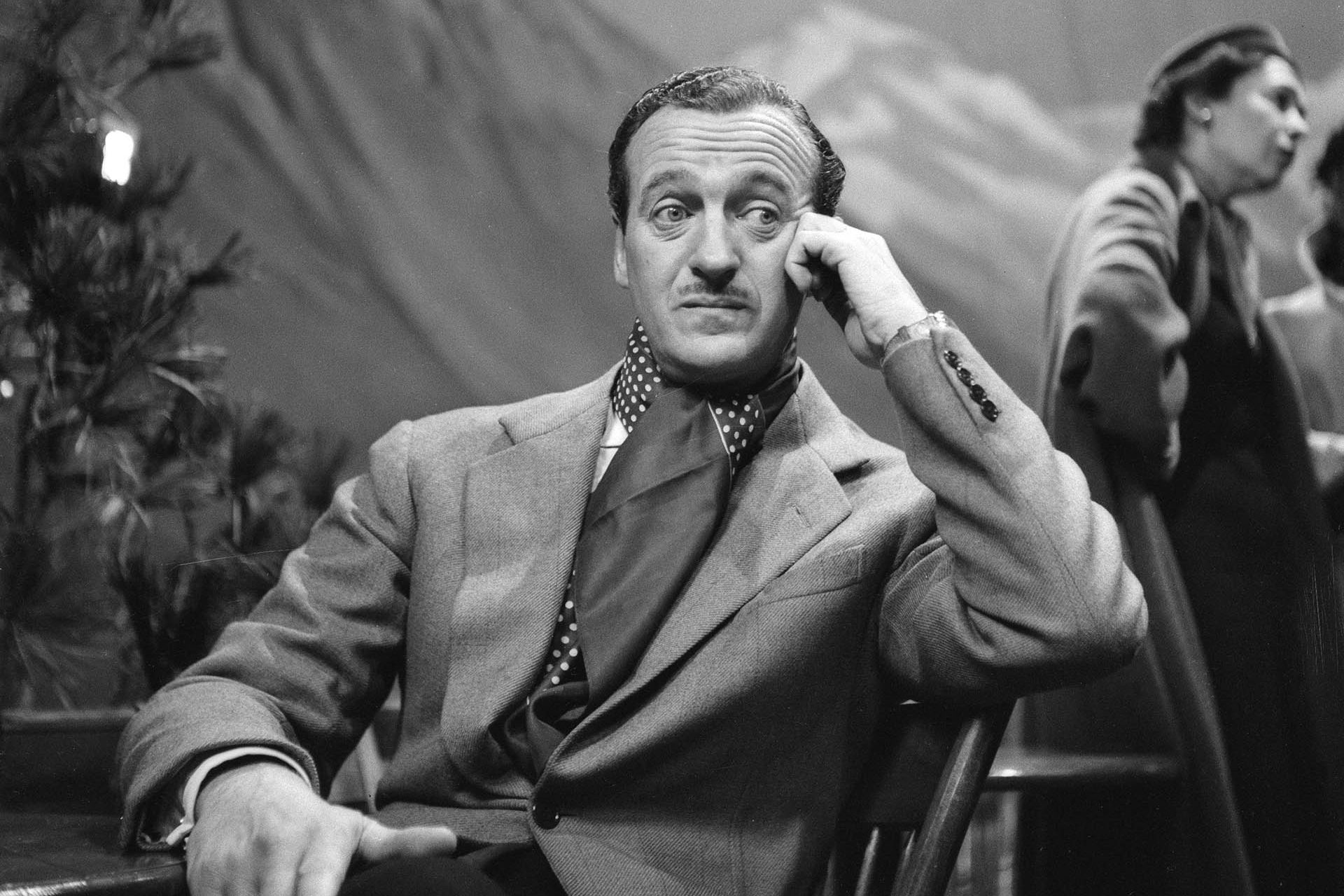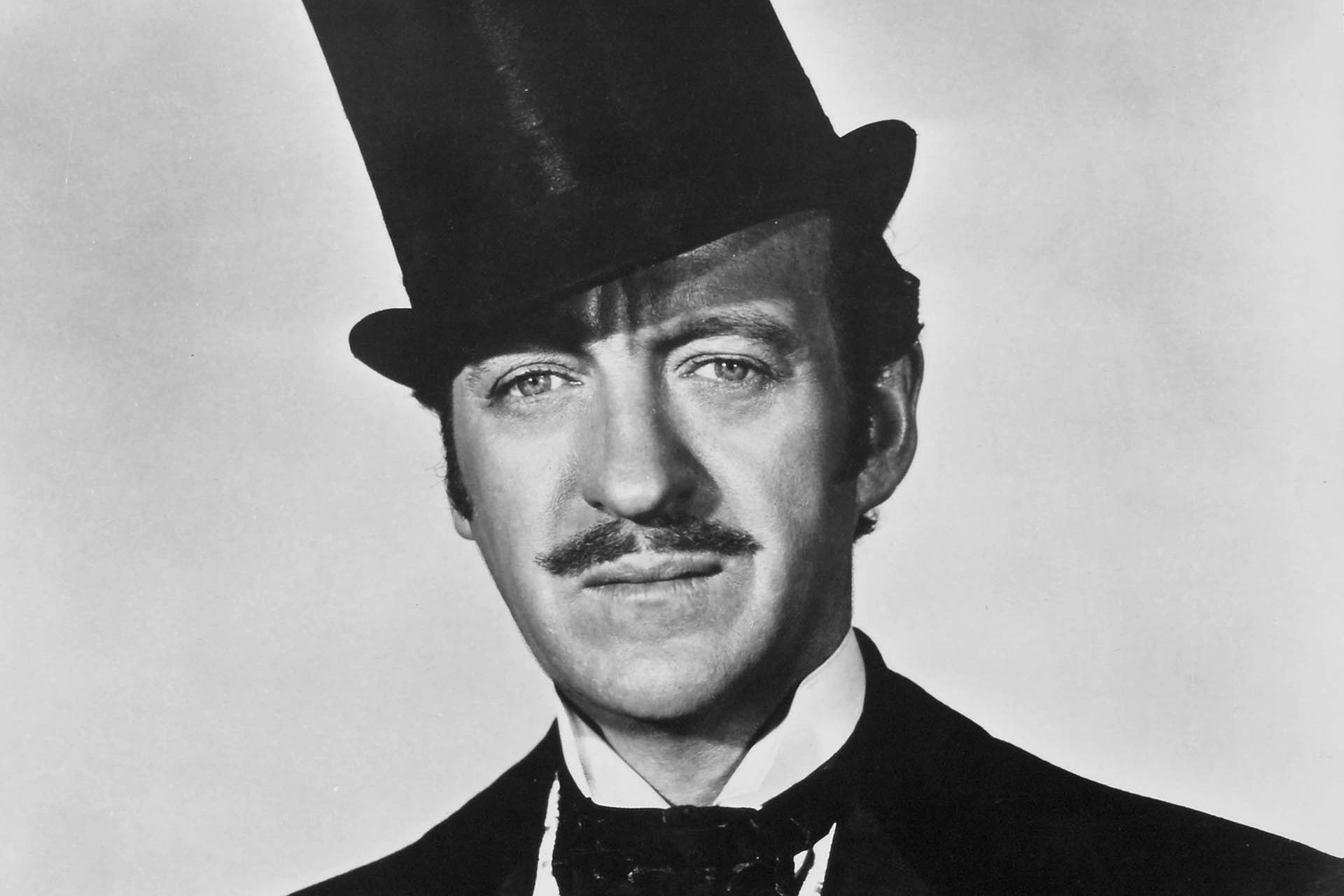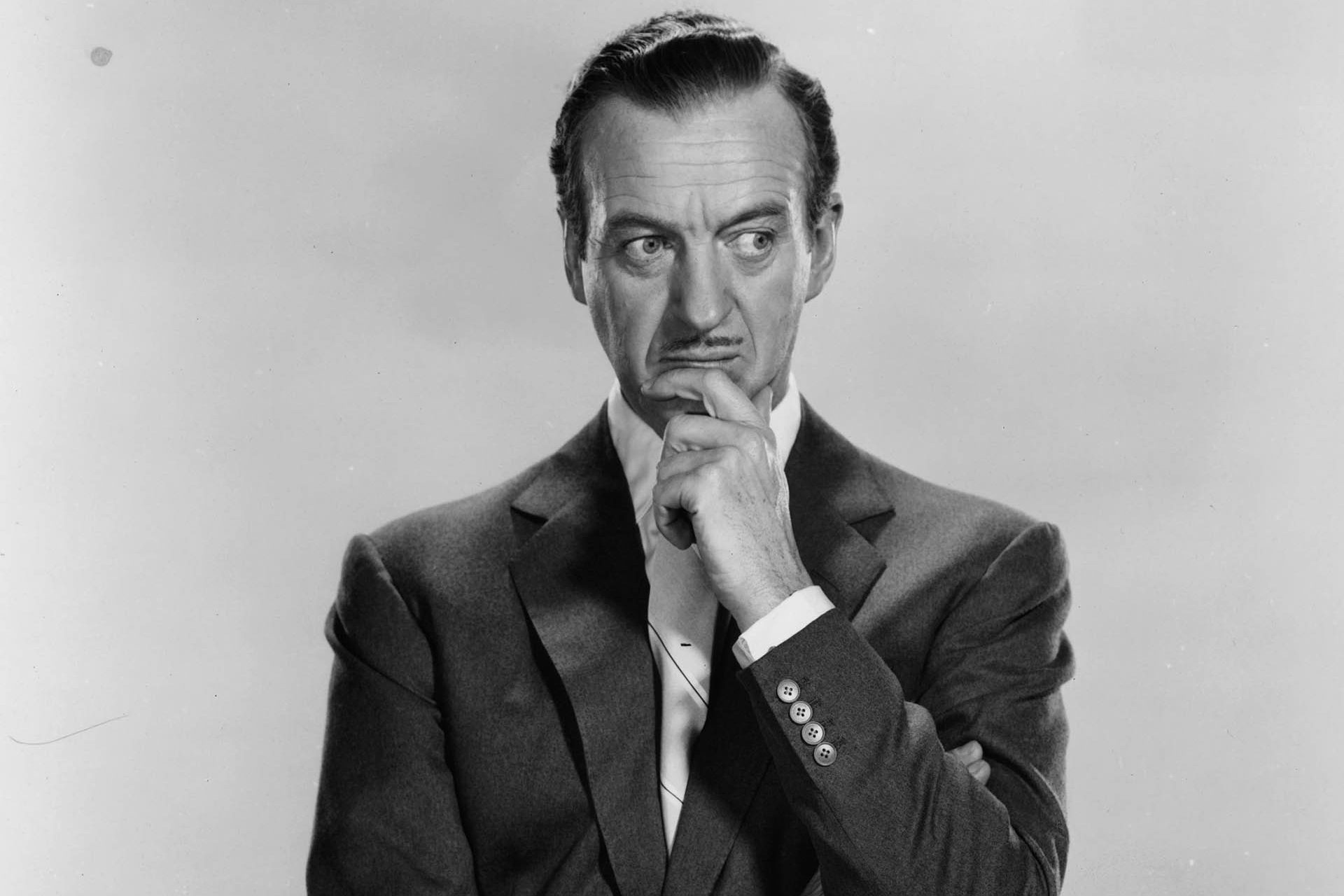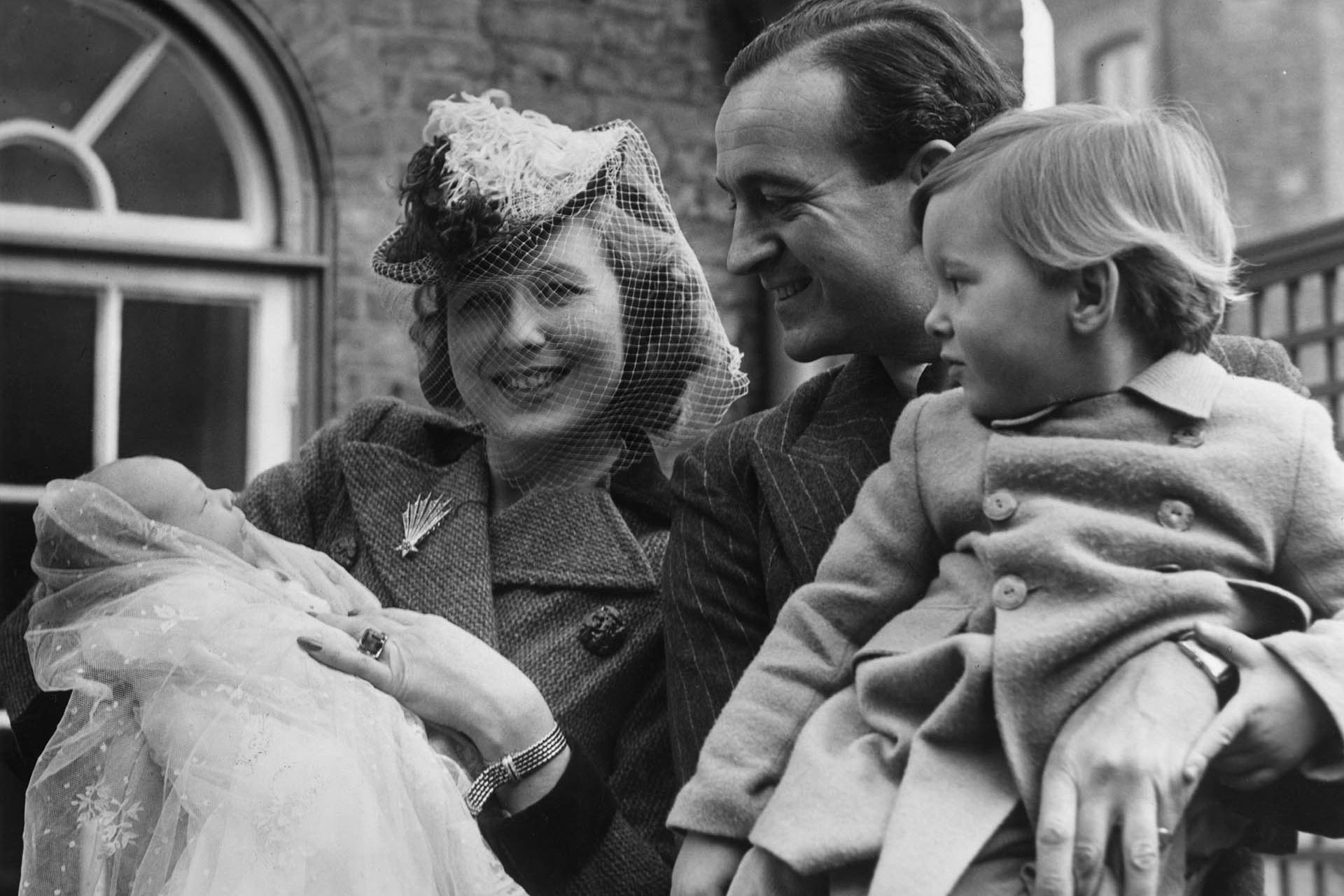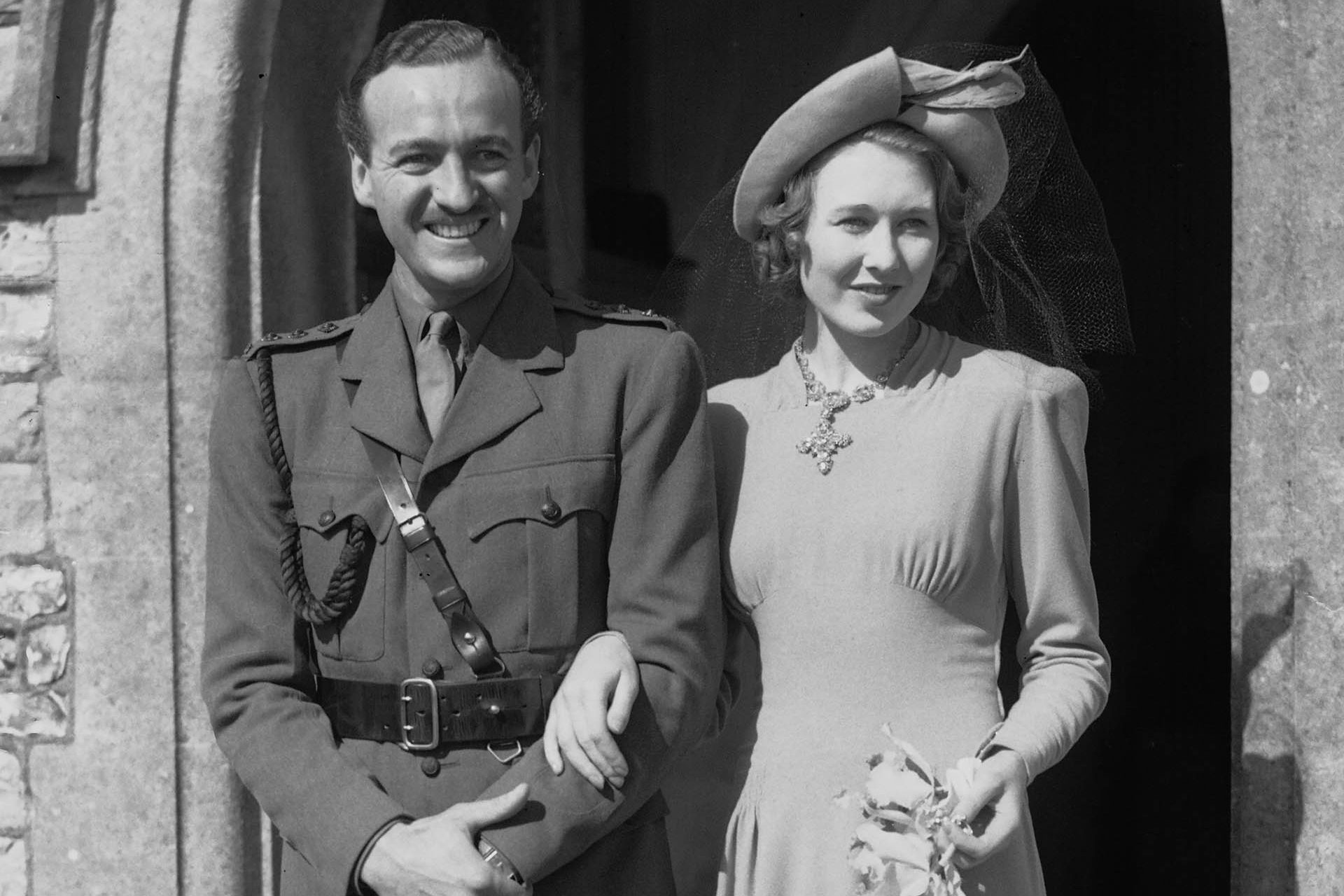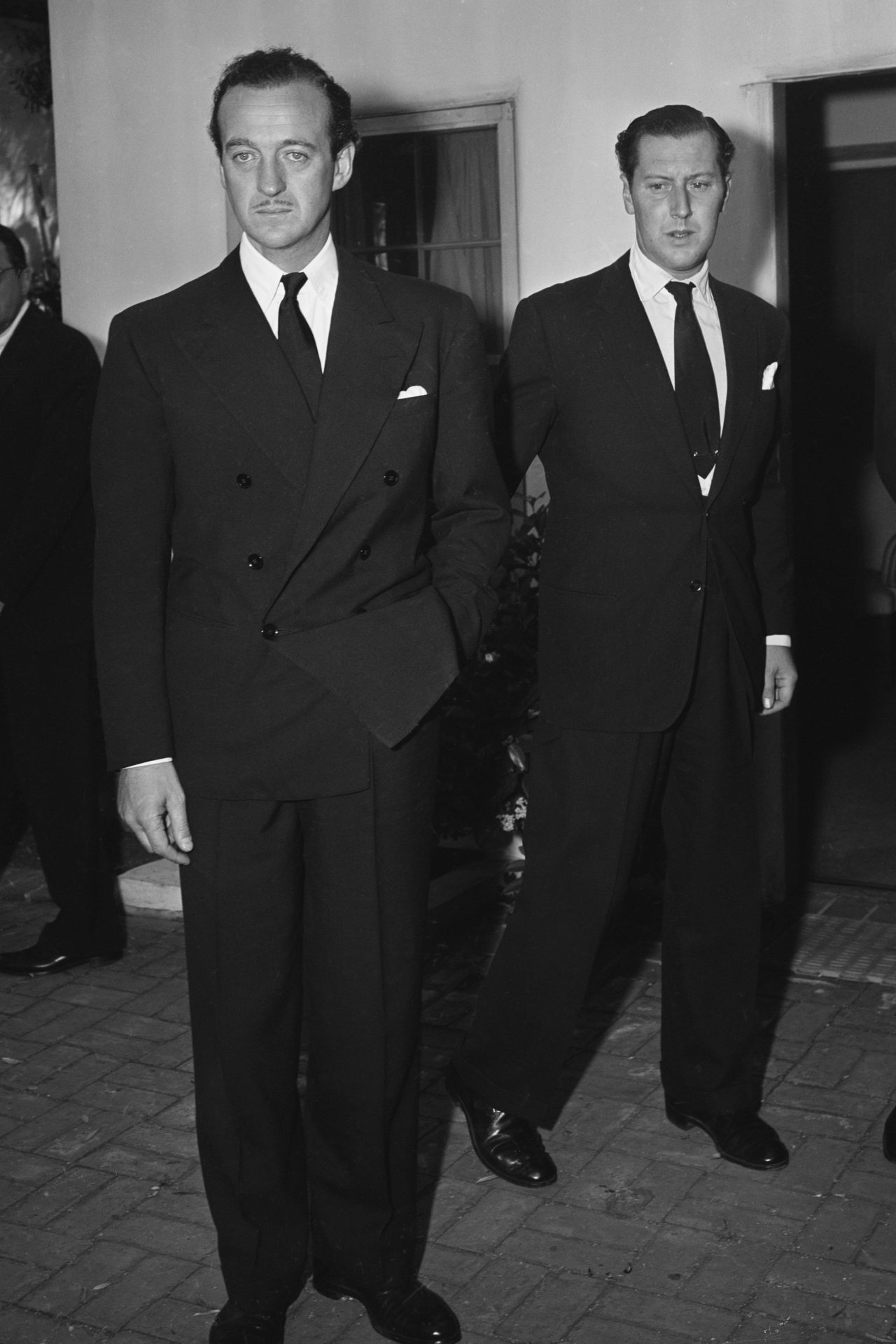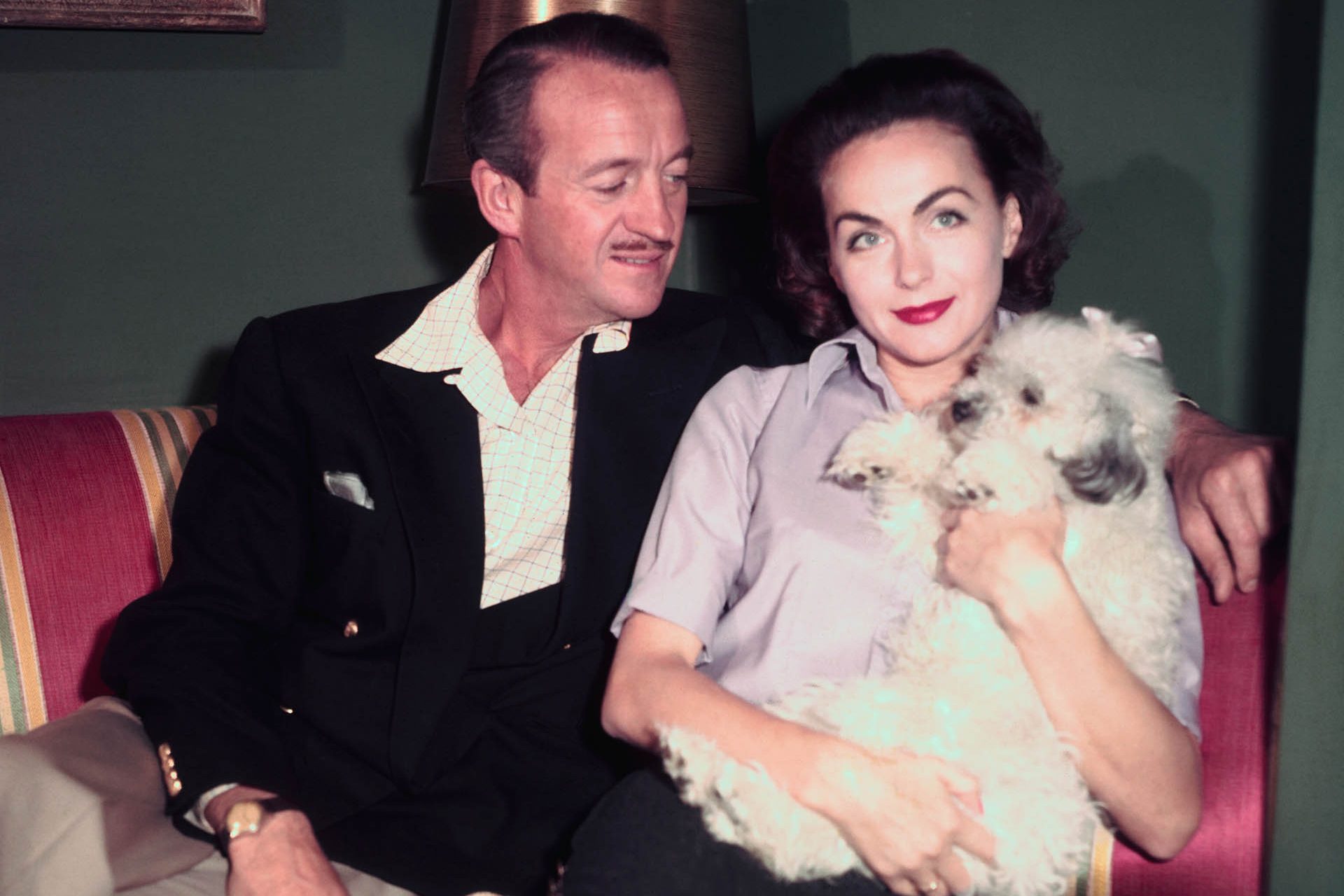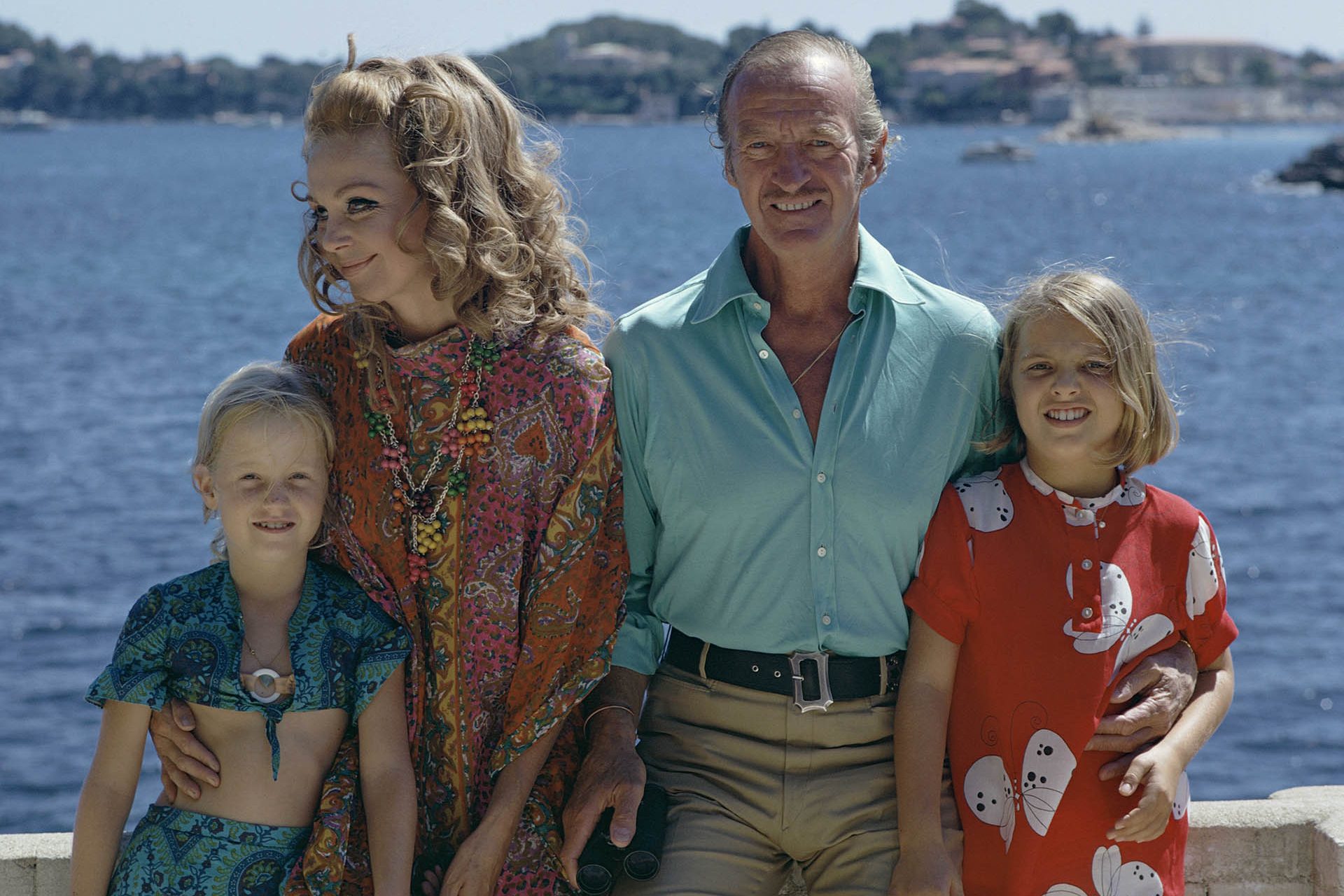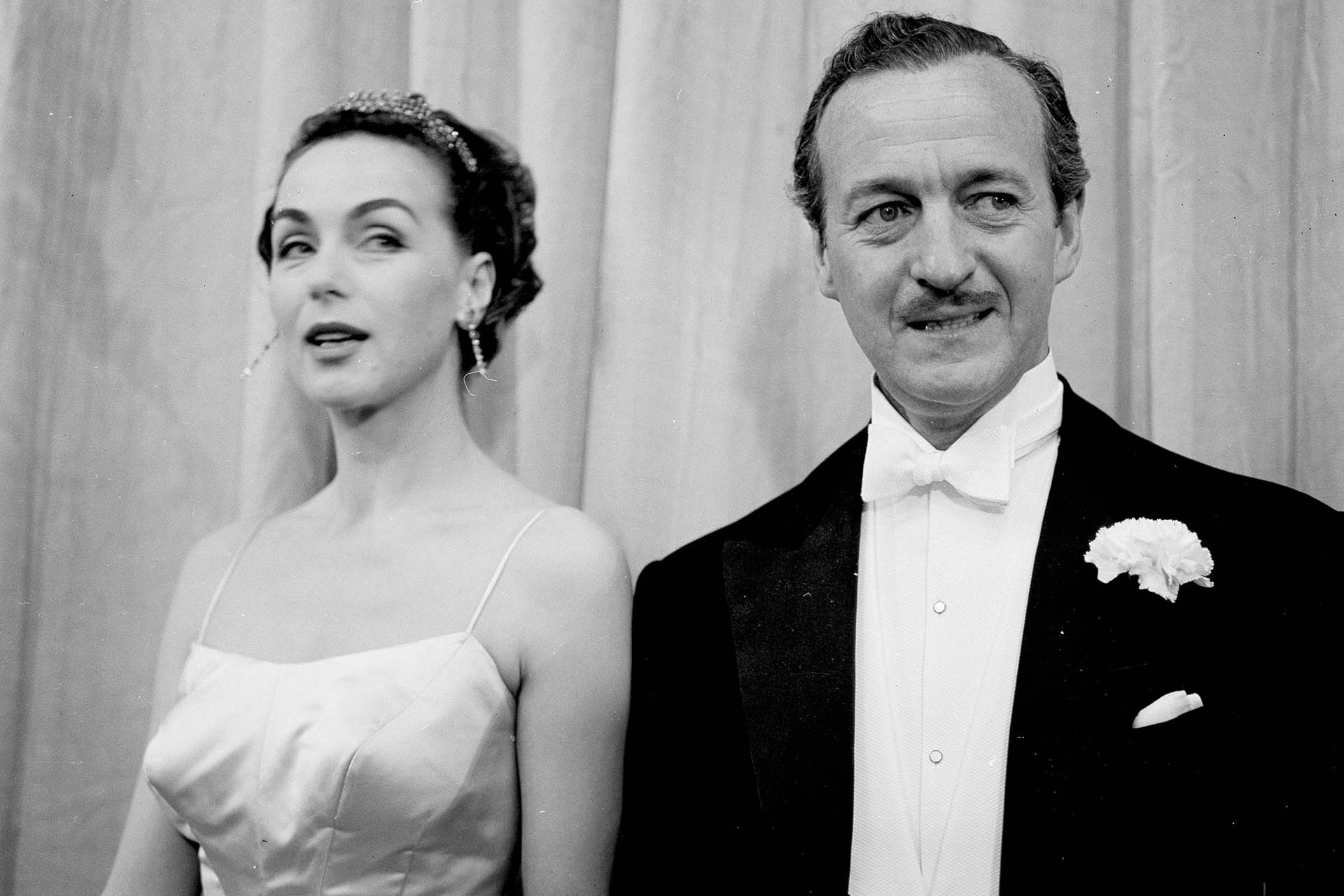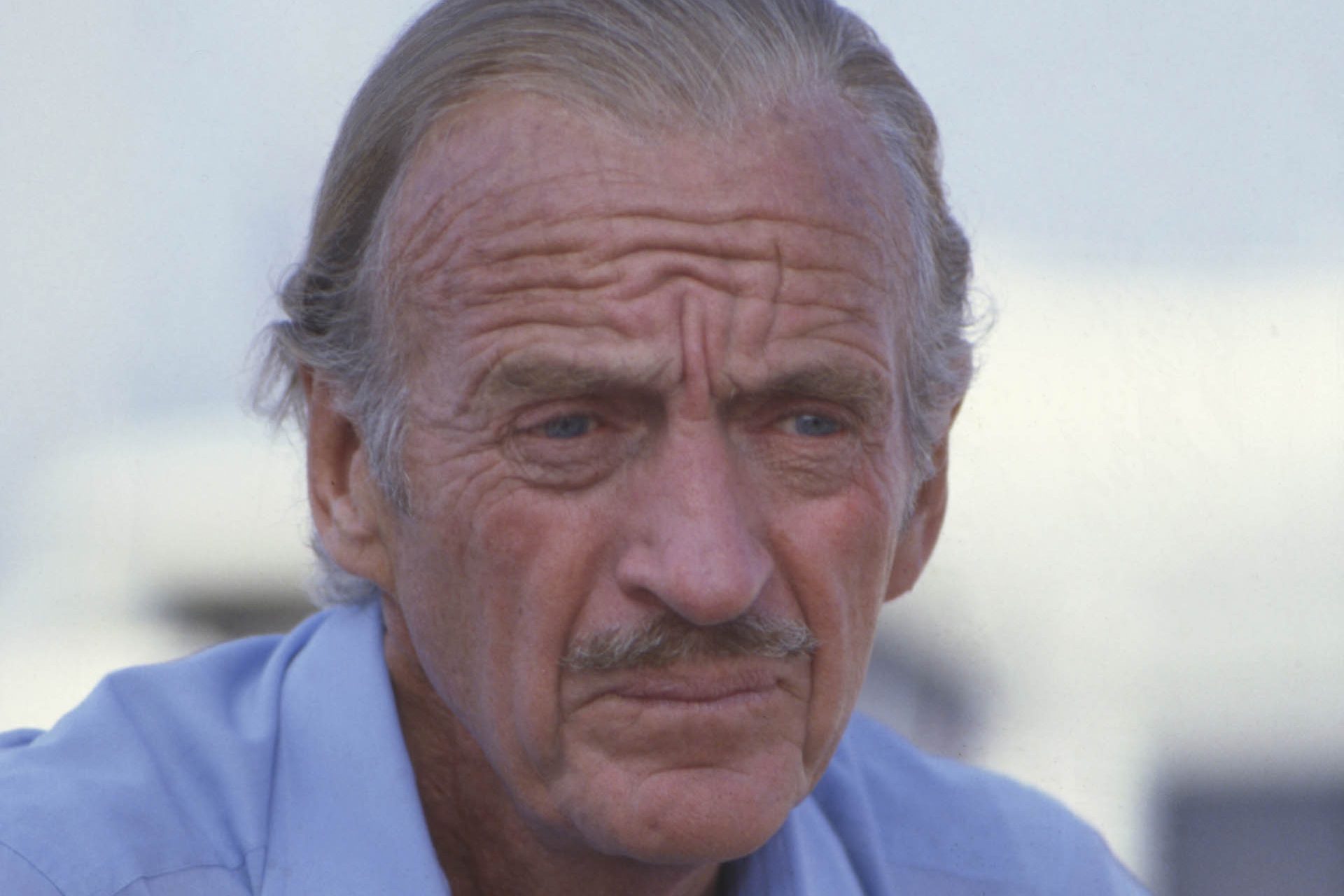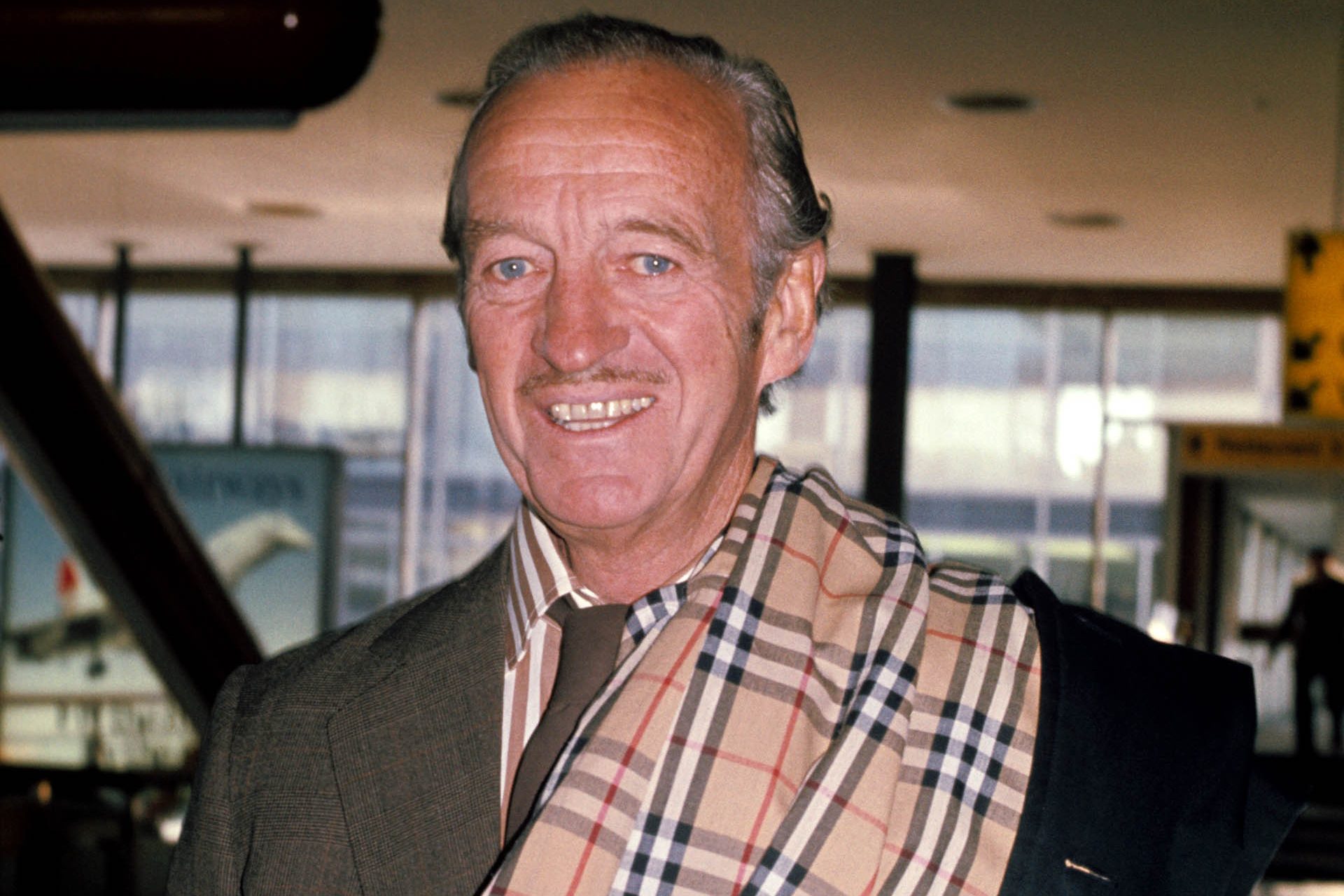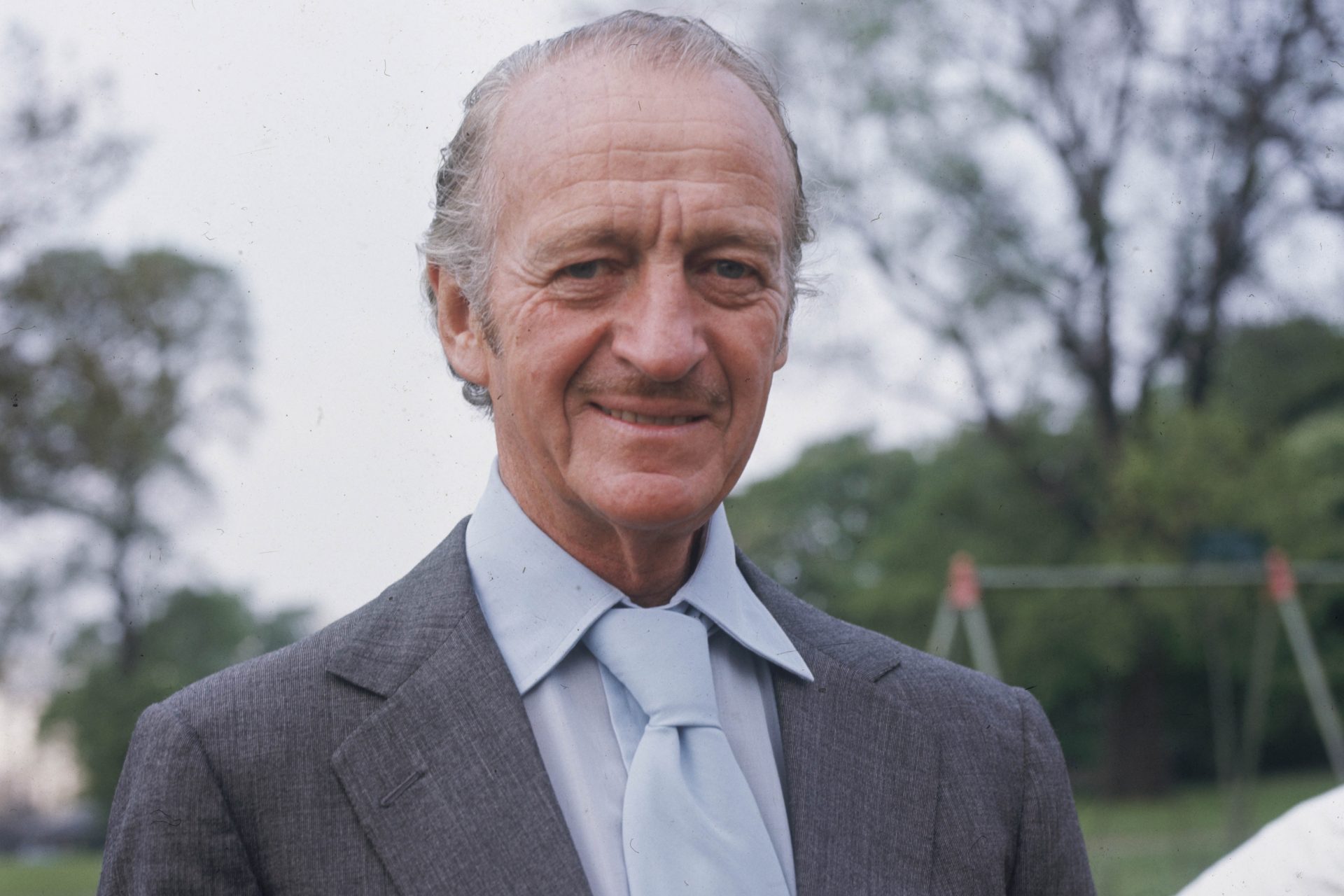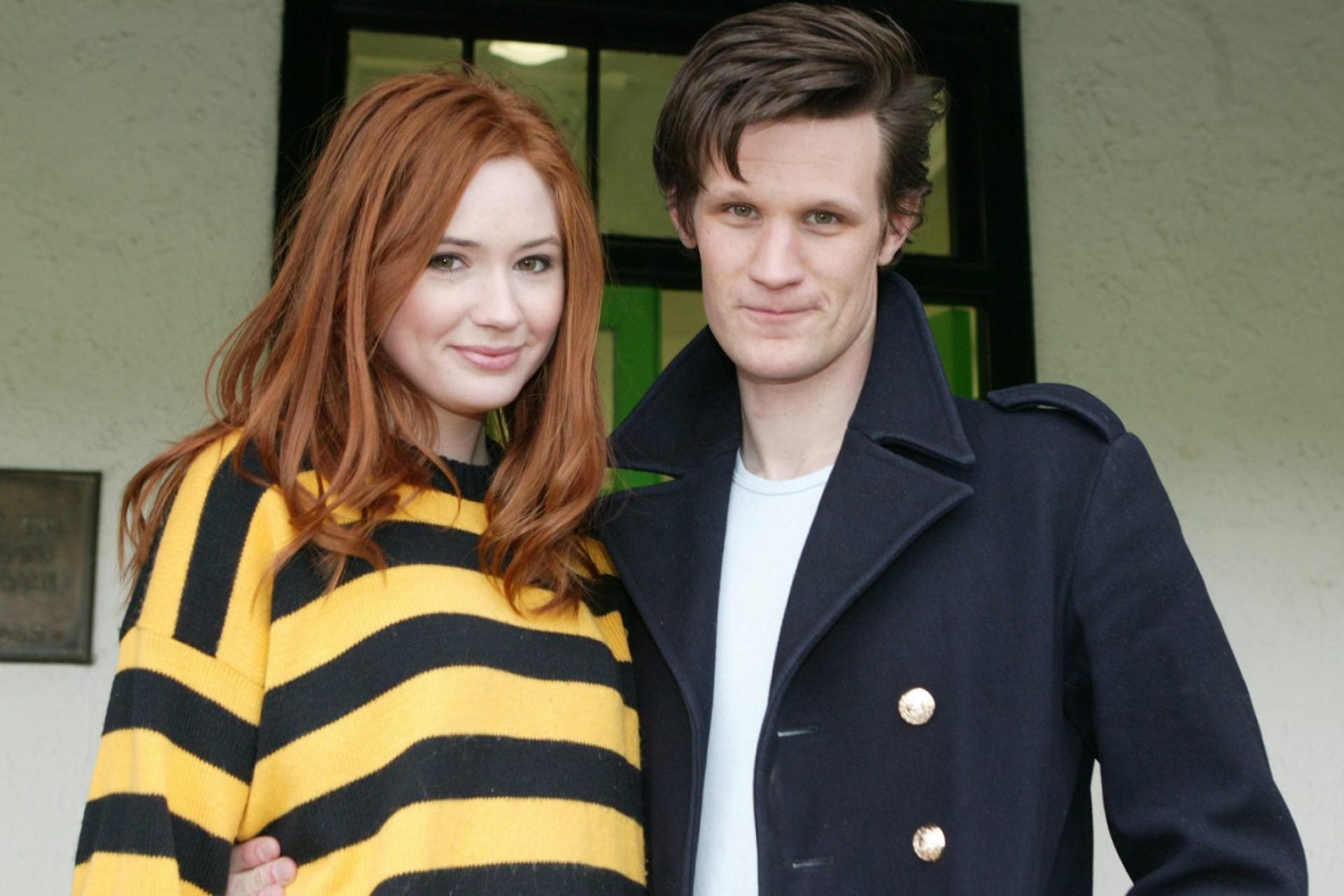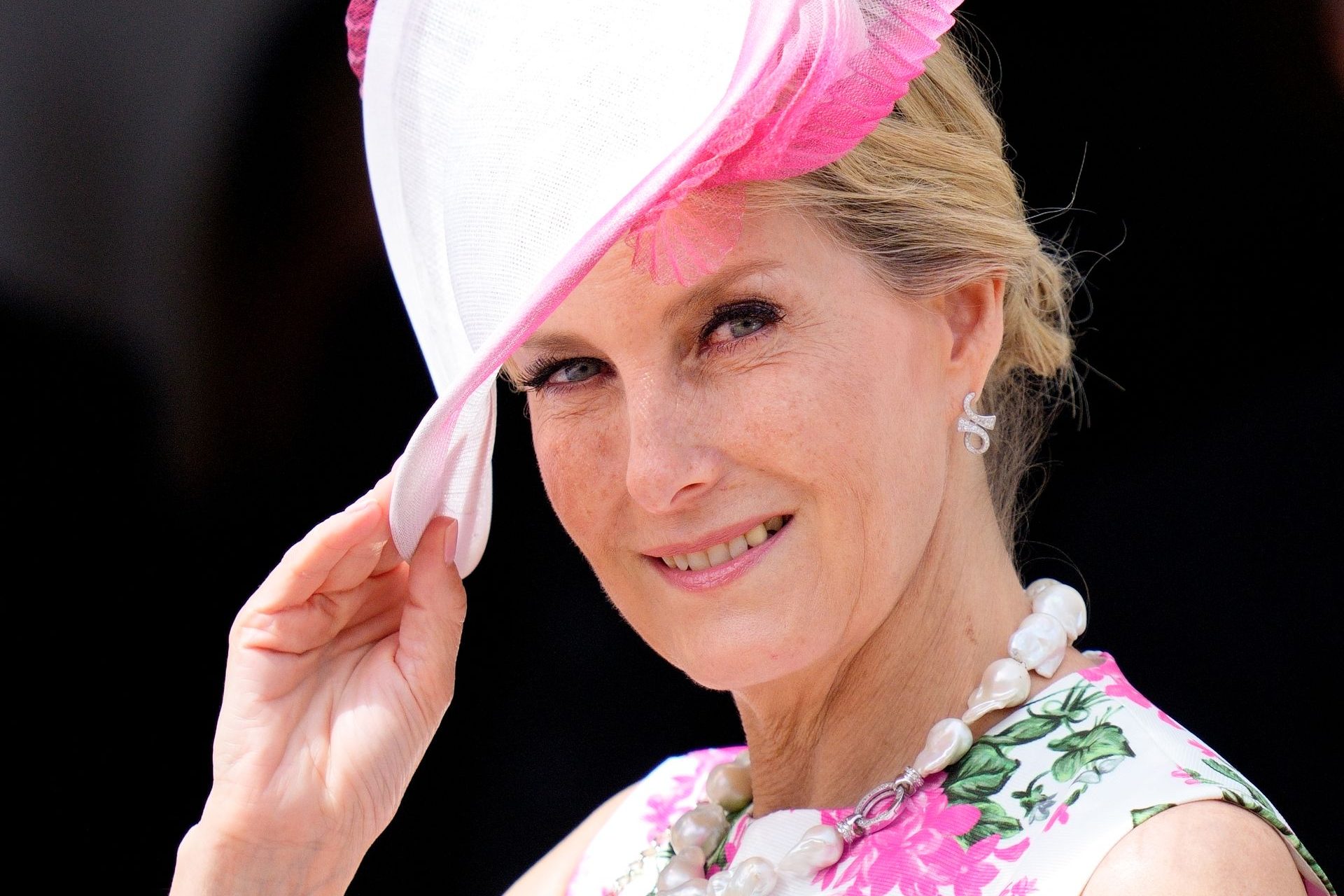A life of tragedy and laughs: David Niven in photos
Dapper, cheeky, and utterly charming – David Niven remains an iconic British 'gentleman' who left an indelible mark on Hollywood, starring in films over an impressive five-decade span. His was a life both in the spotlight and in the shadows, where soaring success often intertwined with dark personal drama.
David Niven, born on March 1, 1910, in London, came from a blend of military and aristocratic bloodlines. Carrying on the family tradition, he joined the British Army before venturing to Canada, taking the first steps towards chasing his dreams.
Hollywood stardom didn't end his ties to the military. During World War II, already a renowned Hollywood name, he returned to the UK to serve, battling against Nazi Germany. He climbed the ranks, becoming a lieutenant colonel, and returned to Hollywood with accolades aplenty.
But that was merely a pause in his artistic journey. The 1930s saw his big break in films, thanks to producer Samuel Goldwyn of Metro-Goldwyn-Mayer, who introduced him to the cinematic world following Niven's brief journalistic stint in Canada.
Follow Showbizz Daily to stay informed and enjoy more content!
Over his lifetime, David Niven graced the screens in a whopping 92 films. He was especially adept at two genres: drama and, naturally, comedy, where he consistently showcased his unique blend of class and quintessential British wit.
Niven made his debut with the musical comedy 'There Goes the Bride' (1935). Throughout the '30s, his star rapidly ascended, courtesy of hits like 'Mutiny on the Bounty' (1935), directed by Frank Lloyd; 'Dodsworth' (1936), helmed by William Wyler; and 'Bluebeard's Eighth Wife' (1938).
The 1940s gave us several unforgettable Niven performances, but it was in the '50s when he truly shined, delivering his most acclaimed work. By the '60s and '70s, he had cemented himself as a comedy cinema master. Let's recall some of his standout roles.
Directed by Michael Powell and Emeric Pressburger, this film marked one of Niven's significant leading roles, co-starring alongside actress Kim Hunter. He portrayed British pilot Peter Carter, grappling with life and death both in a hospital and a celestial court.
Twelve years after watching Cary Grant from afar in 'Mutiny on the Bounty,' Niven teamed up with director Henry Coster to star alongside the legendary actor from Bristol and actress Loretta Young. In this romantic comedy, Niven took on the role of Bishop Henry Brougham.
A classic among classics. This adaptation of Jules Verne's novel, directed by Michael Anderson, featured David Niven as Phileas Fogg. Alongside him was his faithful servant Passepartout, brought to life by the Mexican actor Cantinflas. The film also starred Shirley MacLaine and Robert Newton.
A drama interweaving various romances amidst old tales and fresh dilemmas, set amongst the regular guests of an aged hotel. Directed by Delbert Mann and boasting a star-studded cast including Burt Lancaster, Rita Hayworth, and Deborah Kerr, this role earned Niven an Oscar for Best Actor.
Based on the eponymous novel by Françoise Sagan, this drama directed by Otto Preminger saw David Niven and Deborah Kerr reunite on screen. They portrayed Raymond and Ann – a charming widower and his lover. Raymond's daughter, Cécile (Jean Seberg), does everything she can to separate them.
While he did participate in some propaganda films during World War II, 1961's 'The Guns of Navarone' stands out as the most memorable war film of his career. Directed by J. Lee Thompson, Niven shared the screen with Hollywood greats Gregory Peck and Anthony Quinn.
A prime example of comedy in Niven's repertoire, this film – which also offers a touch of detective intrigue – was the first in a series mostly directed by Blake Edwards. Niven played Sir Charles Lytton, a wealthy English 'playboy' whom Inspector Clouseau (Peter Sellers) suspects is the infamous jewel thief 'The Phantom.'
An action-packed war film set in 1900 China, it delves into colonial tensions as foreign embassies are rocked by a nationalist uprising. Directed by Nicholas Ray, the film stars Charlton Heston and Ava Gardner alongside David Niven, who portrayed Sir Arthur Robinson, the British ambassador.
A delightful comedy by Ralph Levy about two charming rogues who woo women just for the thrill. Two close pals, their friendship is tested when Lawrence (Niven) becomes envious of Fred's (Marlon Brando) romantic successes.
Approaching the end of the 60s, David Niven was chosen for the quintessential role of British elegance: James Bond. He starred in 'Casino Royale', a film that, in essence, was a surreal comedy about a retired 007 brought back into action to save the world. All of this alongside a stellar cast that included Peter Sellers, Ursula Andress, Woody Allen, Orson Welles, and Deborah Kerr.
Another comedic role where David Niven would share the screen with Peter Sellers, as well as with Alec Guinness, Peter Falk, and Maggie Smith among others. In this film, he plays one of the five detectives hired by a wealthy eccentric who offers them a million dollars for a murder that has not yet occurred.
David Niven's career extended into the 80s, a decade in which he starred in two more 'Pink Panther' films, reprising his role as Sir Charles Litton: 'Trail of the Pink Panther' (1982) and 'Curse of the Pink Panther' (1983). The latter was his final film, released the same year as his passing.
He left behind a legacy of professional successes, and his reputation as a charming womanizer wasn't limited to his on-screen roles. Among his most notable liaisons, aside from his two marriages, were relationships with actresses like Marilyn Monroe, Grace Kelly, and Rita Hayworth.
Many stories surround Niven, like the one at the 1974 Oscar ceremony. As Niven was about to announce the Best Picture winner, a man named Robert Opel streaked across the stage naked in support of the gay community. Niven, showcasing his sharp wit, quipped, “Isn’t it fascinating to think that probably the only laugh that man will ever get in his life is by stripping off and showing his shortcomings?”
Niven recounted stories and anecdotes from both his professional and personal life in a couple of autobiographical books. One of them, 'The Moon’s a Balloon' (1971), even became a best-seller.
However, the tales Niven shared often showcased the brighter moments, leaving out the profound tragedies of his life. In 2009, British film historian Michael Munn published 'David Niven: The Man Behind the Balloon', which, through interviews with those close to the actor like his ex-wife Hjordis, revealed some of his secrets.
One of the first major tragedies in David Niven's life occurred when he was just a child. It was in 1915 when his father died in battle at Gallipoli, also known as the Battle of the Dardanelles, fought during World War I between British and French forces against the Ottoman troops with the aim of capturing Istanbul.
After the death of his father, his mother married the conservative politician Sir Thomas Comyn-Platt. Niven later discovered that not only had he been his mother's lover, but also, years later, that he was his biological father. This revelation is detailed by Munn, who also discloses in his book that young Niven was assaulted by his schoolmates.
Tragedy didn't spare his adult life either. Both of Niven's marriages were fraught with drama. His first marriage to Primula Rollo ended tragically after six years. They wed in 1940, and in 1946, Primula, the mother of his two biological children, aged 3 and 6 lost her life in an accident.
The Scottish woman died at a Hollywood party. There, she was "it" in a game of Sardines/Hide and Seek and trying to look for the other guests in a strange house with all the lights off. Unable to see where she was going, she opened a door she probably thought was a closet, walked in... and fell down steep celler steps onto the concrete floor below, according to reports. She died the following day, age 28.
Munn also mentions that following Rollo's death, Niven fell into such a deep depression that he contemplated suicide. He went as far as placing a gun in his mouth and pulling the trigger, but the firearm malfunctioned…
Here, he's pictured at her memorial service
Just two years later, in 1948, Niven remarried, this time to Swedish model Hjördis Tersmeden. However, the truth is that their relationship never truly worked. With Hjördis, Niven was more in search of a mother for his children than a wife. Although there was reportedly no love between them, they never divorced.
With Hjördis, he had two adopted daughters. One of them was, in fact, his biological child, a result of an affair with an 18-year-old woman. This situation typified one of Niven's recurring issues: his womanizing tendencies, paralleled by his issues with alcohol.
Their relationship was so unhealthy that Niven once told a biographer he often thought of killing himself (again) and even considered murdering Hjördis once when she was drunk in the bathtub. "I couldn't have lived with that guilt," the actor confessed.
In 1980, David Niven began experiencing fatigue, muscle weakness, and voice loss. These symptoms progressively worsened until, a year later, he was diagnosed with the most devastating illness: amyotrophic lateral sclerosis (ALS).
ALS didn't allow him more than three years of life. After learning of his diagnosis, he retreated to his residence in the Swiss commune of Château-d'Œx, where he passed away on July 29, 1983, at the age of 73.
The curtain fell on the riveting story of an actor who defined an era and made history in cinema, particularly in the comedy genre. A gentleman who experienced successes and tragedies in equal measure and left an indelible legacy in the world of film.

